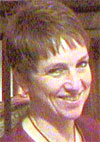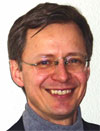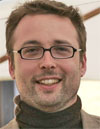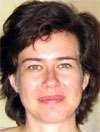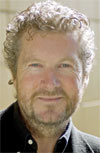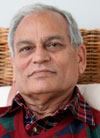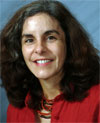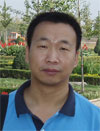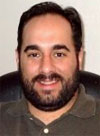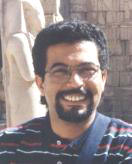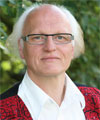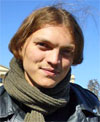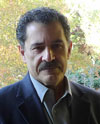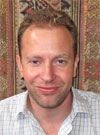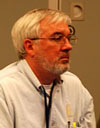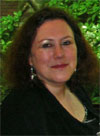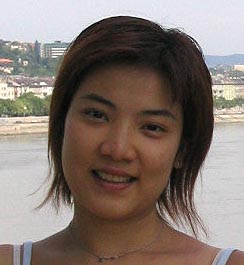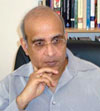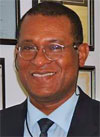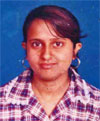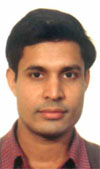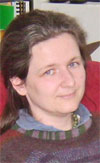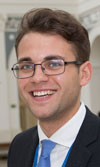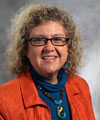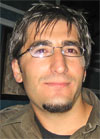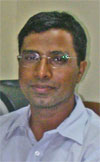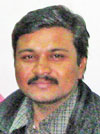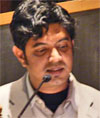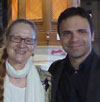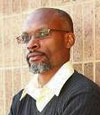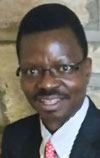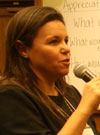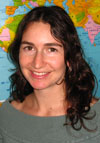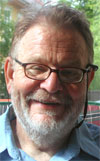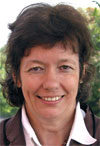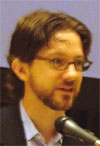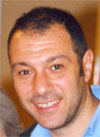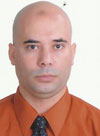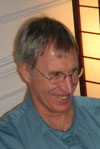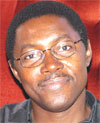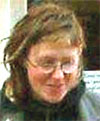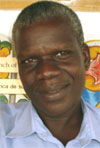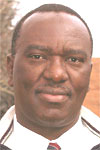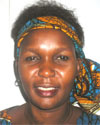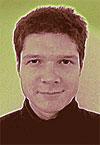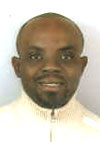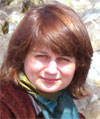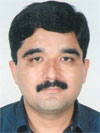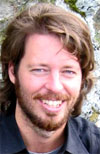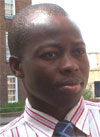Research Team
General
Academic Advisors
Refugees and Humiliation Project (alphabetical)
Terrorism and Humiliation Project (alphabetical)
The research branch of Human Dignity and Humiliation Studies (HumanDHS) aims at encouraging research related to dignity and humiliation. We wish to contribute to the capacity of people to build peaceful societies and be mindful of how humiliation may disrupt the social fabric, and how social cohesion may be sustained by preventing humiliation from occurring. You are invited to develop ideas and projects that aim at dignifying our world, and preventing and healing humiliation.
We wish to harness and nurture everybody's expertise for our HumanDHS research activities, create cross-fertilization and synergy, and hope that ouLuyor efforts will grow organically from our discussions and meetings!
| LINDA M. HARTLING Linda M. Hartling, Ph.D., is the HumanDHS Director, and also a Member of the HumanDHS Global Advisory Board, HumanDHS Global Core Team, HumanDHS Global Coordinating Team, and the HumanDHS Education Team. She is furthermore the Editor of the Journal of Human Dignity and Humiliation Studies (JHDHS). Linda M. Hartling is the recipient of the Association for Creativity in Counseling Research Award (see the slides of her acceptance talk). Linda is affiliated with the Jean Baker Miller Training Institute (JBMTI) at the Stone Center, which is part of the Wellesley Centers for Women at Wellesley College in Massachusetts. Until 2008, she was its the Associate Director. Dr. Hartling is a member of the JBMTI theory-building group advancing the practice of the Relational-Cultural Theory, a model of psychological growth and development. She coordinates and contributes to training programs, publications, and special projects for the JBMTI. She holds a doctoral degree in clinical/community psychology and has published papers on resilience, substance abuse prevention, shame and humiliation, relational practice in the workplace, and Relational-Cultural Theory. Dr. Hartling was co-editor of The Complexity of Connection: Writings from the Jean Baker Miller Training Institute at the Stone Center (2004) and author of the Humiliation Inventory, a scale to assess the internal experience of derision and degradation. She is currently a member of an international team establishing the first Center for Human Dignity and Humiliation Studies. [read more] |
|
| MOIRA R. ROGERS Moira R. Rogers, Ph.D., is also a Member of the HumanDHS Global Advisory Board and part of the core HumanDHS Research Management Team. Moira is Associate Professor of Spanish at Eastern Mennonite University and Intercultural Consultant for a variety of organizations in Germany, Spain, and the U.S. She has a Ph.D. in Science and Technology Studies from Virginia Tech, Blacksburg, VA, an MA in Biblical Studies from the Associated Mennonite Biblical Seminaries, Elkhart, IN, and a Teaching Degree in Philosophy from the Universidad de Buenos Aires, Argentina. Born in Argentina, Professor Rogers grew up in a multicultural and multilingual home in Buenos Aires and brings her personal and professional experiences as well as her Anabaptist faith commitments to bear on her teaching and research work. As faculty, she teaches Spanish, intercultural communication, and courses on Migrations/ Inmigration that integrate Global, National, and local issues. Her doctoral research focused on the elitism and mechanisms of exclusion of academic cultures in early eighteenth-century Germany, published as Newtonianism for the Ladies and Other Uneducated Souls: The Popularization of Science in Leipzig (2003). More recently, she has done training at the Summer Institute for Intercultural Communication in Portland, Oregon. She received an international award for her study entitled "Internationales Baucamp: Bausteine für ein gelingendes Zusammenleben im 21. Jahrhundert" (2005). Moira currently leads a program at the University of Cadiz, Spain, and works with its newly established "Instituto de Inmigración e Interculturalidad." Her current research project is entitled "Humiliation and Human Strength: Stories of African-Spanish Migrations," a study that tells a chapter of the story of mass migrations in the 21st century with a focus on the Spanish enclaves of Ceuta and Melilla in northern Morocco. Through this study she hopes to contribute to breaking the cycles of humiliation fueled by the displacement of many and to making our world a hospitable place for all people. |
|
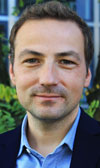 |
SIMON KOSCHUT Simon Koschut is currently a Visiting Professor in International Relations and European Integration at the Otto Suhr Institute at the Freie Universität Berlin, Germany. Starting in 2019, he will begin a five-year Heisenberg Research Fellowship funded by the German Research Council (DFG). Previously, he led a DFG-funded research network on the emotional underpinnings of power and hierarchies in world politics. Simon serves as a spokesperson of the DVPW theme group "Norm Research in IR", and is lead editor of the Brill book series "Critical Emotion Research“. His research interests include Security Studies, Peace and Conflict Studies, and International Relations theory, in particular regional security governance, norm research in International Relations, and emotions in world politics. His book Normative Change and Security Community Disintegration (Palgrave Macmillan 2016) received the Ernst Otto Czempiel Award for the best postdoctoral monograph published in the field of peace research. Simon has held visiting positions at Harvard University's Weatherhead Center for International Affairs, San Fransisco State University, and Freie Universität Berlin. He completed his PhD and his Habilitation in Political Science at the University of Potsdam.
|
| CHERYL DUCKWORTH Cheryl Duckworth is a professor of Conflict Resolution at Nova Southeastern University. A peace-building program leader and conflict resolution policy analyst, she has served such organizations as the Institute for Multi-Track Diplomacy and the Center for International Education. She has lived in Zimbabwe and Paraguay, and published and presented globally on her two passions, peace education and peace economics, exploring ways to transform the economic, political, social and psychological root causes of war and violence. Her more recent publications include her book which explores the role of dignity in social movements, Land and Dignity in Paraguay, and an article on her implementation of critical peace education curriculum in a juvenile detention home. Cheryl has trained hundreds of students, teachers and community leaders in peace education and conflict resolution both in the US and internationally. Currently she serves as the faculty advisor of NSU’s Peace Education Working Group and on the Advisory Board of the Hope Development Foundation, a women’s rights and peace building organization in Pakistan. Cheryl has taught qualitative research methods, foundations of conflict resolution and peace education. She is active in the Alliance for International Education, the Comparative and International Education Society and the International Peace Research Association. She blogs at Teach for Peace. |
|
 |
JOHN XUEXIN ZHANG John Xuexin Zhang is Professor of Psychology at the Department of Psychology of Fudan University in Shanghai, China. Professor Zhang has been dedicated to brain research and psychological research on language and his two recent research achievements are the result of his twenty years’ scientific exploration. His research has been funded by the National Natural Science Foundation, the National Bureau of Education and direct grants from CUHK. Professor Zhang started his college study at the age of 15, entering the famous "Class of the Gifted Youth" (Juvenile Class in the University of Science and Technology of China (USTC)). He obtained a bachelor’s degree in physics in 1989 from USTC and a master’s degree in experimental psychology from the Beijing Graduate School of USTC in 1992. He later went to study in the U.S. under the supervision of world famous scholars and obtained his Ph.D in psychology from Princeton University in 1999. Before joining CUHK in 2006, he was a Research Associate at Yale University and The University of Hong Kong. Professor Zhang has published many SCI papers and completed two projects on Chinese characters using brain and neuroscience techniques, funded by the National Natural Science Foundation. Professor Zhang served as a visiting professor of Beijing Normal University and vice director of the Guangdong Key Lab of Medical Molecular Imaging in the Medical College of Shantou University. He was also adjunct full professor and Ph.D Supervisor of the Medical College of Shantou University and Invited External Ph.D Supervisor of the South China Normal University of China. Professor Zhang kindly allowed us to upload one of his texts here. He wrote on 21st March 2015: "The paper is in my view of relevance to general public as it essentially deals with the soul issue. The conflict between religious people and people who do not have a belief in some divinities is a big obstacle for peaceful coexistence of people in the world. The paper tries to show that all belief systems are reasoned and legitimate, and not in conflict with each other at all. Meanwhile, the paper also debunks scientism which reduces the human being to nothing but a collection of particles. This will help restore the dignity of the human being, that is, the soul being the master over matter as opposed to the other way around." This is the paper: Zhang, Xuexin John (2015). The Echo Argument: Can Science Explain Consciousness? Shanghai, China: Department of Psychology at Fudan University, available also at www.paper.edu.cn/releasepaper/content/201307-83.html. |
| THOMAS LINDEMANN Thomas Lindemann is Professor of Political Science at Artois University (CERAPS Lille 2) and is visiting professor at Paris I-Sorbonne and Sciences Po Paris. He has recently published Penser la guerre: L’apport constructiviste (l’Harmattan, 2008), La guerre (Armand Colin, Paris 2010), Causes of War: The Struggle of Recognition (ECPR Press, 2010) and The Struggle for Recognition in INternational Politics (with E. Ringmar, Paradigm Publisher, forthcoming 2011). |
|
| KENNETH PARSONS Ken Parsons is an Assistant Professor of Philosophy and Chairperson of the Religious Studies & Philosophy department at Avila University in Kansas City, Missouri. In addition to teaching Ethics, Political Philosophy, Philosophy of Technology, and Philosophy of Religion as well as pursuing his research on structural violence, moral testimony, and theories of power, he is co-working on establishing a Center for Global Studies & Social Justice at Avila. |
|
REINHARD WOLF |
|
WERNER SCHIRMER |
|
| GRACE FEUERVERGER Grace Feuerverger is also a Member of the HumanDHS Board of Directors, and a Member of the HumanDHS Global Advisory Board, and of the HumanDHS Education Team. Grace is Professor in the Department of Curriculum, Teaching and Learning (CTL) at the Ontario Institute for Studies in Education of the University of Toronto. A child of Holocaust survivors, Professor Grace Feuerverger grew up in a multicultural and multilingual home in Montreal and brings her personal and professional experiences to bear on her teaching and research work. Grace was educated at a variety of institutions - McGill University, the Università per Stranieri in Perugia, Italy, the University of California at Berkeley, the University of Alberta, the Hebrew University in Jerusalem, and the University of Toronto. Grace Feuerverger’s research interests focus on theoretical and practical issues of cultural and linguistic diversity, ethnic identity maintenance, and minority language learning within multicultural educational contexts, as well as on conflict resolution and peacemaking in international settings. Her courses at OISE/University of Toronto and her research projects explore the personal and professional texts of those who live within and between various cultural worlds. She continues to direct a multicultural literacy project in various schools in Toronto where she has developed an in-service teacher's guide and video programs. Grace is also Principal Investigator of a large-scale SSHRC (Social Sciences and Humanities Research Council of Canada) research study, which focuses on the school experiences of immigrant and refugee students in Toronto and Montreal. She is also an invited member of the Canadian Commission for UNESCO. Professor Feuerverger’s recent award-winning book Oasis of Dreams: Teaching and Learning Peace in a Jewish-Palestinian Village in Israel (New York/London: Routledge/Falmer, 2001) is based on a nine-year study that she carried out as researcher in this extraordinary cooperative village and it is about hope in the midst of deadly conflict. It is a reflexive ethnography focusing on the two bilingual, bicultural educational institutions in this place of peaceful coexistence - an elementary school where Jewish and Arab children study together, and the "School for Peace" which is a conflict resolution outreach program for Israeli and Palestinian adolescents and their teachers. Please see furthermore: • The "School For Peace": A Conflict Resolution Program in a Jewish-Palestinian Village, paper presented at the 2005 Workshop on Humiliation and Violent Conflict, Columbia University, New York City, December 15-16, 2005. • Building Bridges to Peace and Social Justice: An Emancipatory Discourse in a Jewish-Palestinian Village in Israel, abstract presented at the Second International Conference on Multicultural Discourses, 13-15th April 2007, Institute of Discourse and Cultural Studies, & Department of Applied Psychology, Zhejiang University, Hangzhou, China, as part of the 9th Annual Meeting of Human Dignity and Humiliation Studies. • Teaching, Learning and Other Miracles (Rotterdam: SensePublishers) explores teaching and learning in schools as a sacred life journey, a quest toward liberation (see the flyer). • On the Child's Right to Identity, the Best Interests of the Child and Human Dignity, an Excerpt from Chapter Three of Teaching, Learning and Other Miracles (2007, Rotterdam: Sense), “What I learned from my first day of Kindergarten” presented at the 13th Annual Conference of Human Dignity and Humiliation Studies "World Peace through Humiliation-Free Global Human Interactions," in Honolulu, Hawaii, August 20 to 23, 2009. • Teaching and Writing Vulnerably: An Auto-Ethnography about Schools as Places of Hope, presentation held at the 2009 Workshop on Humiliation and Violent Conflict, Columbia University, New York City, December 10-11, 2009. • Acts of “Great Generosity of Spirit”: The Classroom as a Pathway Toward Abundance and Dignity, abstract presented at the 2011 Workshop on Humiliation and Violent Conflict, Columbia University, New York City, December 8-9, 2011. • Auto-Ethnographic Reflections on the Immigrant and Refugee Experience in an Inner-city High School in Toronto, abstract presented at the 2012 Workshop on Transforming Humiliation and Violent Conflict, Columbia University, New York City, December 6-7, 2012. • The Fairy Tale as a Pathway Toward Dignity for Children of War and Other Oppressions, abstract for the 2016 Workshop on Transforming Humiliation and Violent Conflict, Columbia University, New York City, December 8-9, 2016. |
|
| DORON SHULTZINER Doron Shultziner is also a Member of the HumanDHS Education Team. Doron Shultziner is a lecturer and researcher. Professor Shultziner is the head of the Politics & Communication Department at Hadassah Academic College Jerusalem since 2018. He is also one of the founders of Mali-Center for Enterprising Citizens, a nonprofit that advances social entrepreneurship. He holds a B.A. and a M.A. from the Hebrew University of Jerusalem, and a Ph.D. from the University of Oxford. After he completed his Ph.D., Doron taught at Emory University for two years before returning to Israel. Among his research interests is the topic of human dignity in law. He published several papers in this field. His paper with Itai Rabinovici proposes an approach to understanding this concept in relation to self-worth, through a comparative legal-psychological investigation into three legal systems (US, ECtHR, and Israel). His book Struggling for Recognition: The Psychological Impetus for Democratic Progress shows how, and in what psychological ways, the Montgomery Bus Boycott (of 1955) and the struggle against apartheid in Port Elizabeth (of 1976), were motivated by a desire for dignity. Please see: • "Human Dignity, Self-Worth, and Humiliation: A Legal-Psychological Comparative Approach," in Psychology, Public Policy, and Law 18 (1) [forthcoming; available online], co-authored with Itai Rabinowitz, 2012. • Shultziner, Doron, and Guy Carmi. "Human Dignity in National Constitutions: Functions, Promises and Dangers,"in American Journal of Comparative Law 62 (2), pp. 461-90, doi: 10.5131/ajcl.2013.0003, 2014. |
|
| PATRICIA RODRIGUEZ MOSQUERA Patricia Rodriguez Mosquera is also a Member of the HumanDHS Global Core Team and she is part of the core HumanDHS Research Management Team. Patricia is currently Assistant Professor at the School of Social Sciences and Law, Brunel University, UK. Patricia studied psychology at the Autónoma University of Madrid (Spain) and the University of Amsterdam (UvA, The Netherlands). She obtained her Ph.D. from the University of Amsterdam in 1999. Her Ph.D. involved a series of cross-cultural studies on the role of honor in emotion. She was awarded a post-doctoral research grant from the Netherlands Organisation for Scientific Research (NWO) to continue her work on honor cultures. She worked as a post-doctoral researcher and as Assistant Professor at the Department of Social Psychology, University of Amsterdam. She is currently Assistant Professor at the School of Social Sciences and Law, Brunel University, UK. Her research focuses on the interplay between culture and emotion. She does research on a variety of emotions: pride, shame, anger, envy, and happiness. She has studied emotions in a variety of cultures and geographical regions: Southern Europe, Northern Europe, North-Africa, Middle-East, the Caribbean islands, U.S.A. Her work on humiliation focuses on the role of this emotion in insult-related conflict. She is especially interested in the situational, cognitive, and behavioral correlates of humiliation. Please see: • Humiliation and Honor, note presented at Round Table 1 of the 2005 Workshop on Humiliation and Violent Conflict, Columbia University, New York City, December 15-16, 2005. • Humiliation and Racism, paper Presented at The National Conference on Racism in Global Context, 9th-11th November 2007, Murdoch University, Australia. • Rodriguez Mosquera, P.M., together with Agneta H. Fischer, Antony S. R. Manstead, and Ruud Zaalberg (2007), Attack, Disapproval, or Withdrawal? The Role of Honor in Anger and Shame Responses to Being Insulted, Cognition and Emotion, in press. |
|
| EVELIN G. LINDNER Evelin Gerda Lindner is the Founding President of the Human Dignity and Humiliation Studies (HumanDHS) network and initiator of the World Dignity University initiative. She is a transdisciplinary social scientist and humanist and holds two Ph.D.s, one in medicine and one in psychology. In 1996, she designed a research project on the concept of humiliation and its role in genocide and war. European history served as starting point. |
|
ALICIA CABEZUDO |
|
| MAURO KOURY Mauro Guilherme Pinheiro Koury works with Anthropology of Emotions and is also a Member of the HumanDHS Global Advisory Board. He is a Professor in the Department of Social Science at the Federal University of Paraíba, Brazil and Director of GREM – Research Group of Anthropology of Sociology of Emotions. |
|
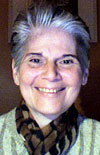 |
IRENE JAVORS Irene Javors, M.Phil.; M.Ed.; LMHC, is a psychotherapist in NYC. She teaches in the Mental Health Counseling Program, Ferkauf Graduate School of Psychology, Yeshiva University. She is the author of Culture Notes: Essays on Sane Living (ACFEI MEDIA: 2010). She is a frequent arts reviewer for the radio program State of the Arts-NYC on WBAI radio. She has written on opera for the Hyperallergic’s online journal and is a reviewer and arts writer for the Gay and Lesbian Review Worldwide. Her areas of specialization are: gender and sexuality, loss and bereavement, companion animal loss, creativity, and the interface of culture and psyche. Her website is: www.ijavorsoptimalliving.com |
BERNARD HOFFERT |
|
| EMANUELA DEL RE Emanuela C. Del Re is also a Member of the HumanDHS Global Advisory Board. Emanuela C. Del Re is an Italian scholar, expert in conflict studies, migrations, minorities, religious phenomena, security issues, visual sociology, and specialist in the Balkans, Caucasus and Middle East (in particular Iraq, Syria, Jordan). She was appointed as the European Union Special Representative for the Sahel on 21 June 2021 and her mandate was renewed until 31st August 2024 (see her on EuroNews in January 2024). She has been She is a tTenured researcher at the university Niccolò Cusano of Rome, where she has been professor of Political Sociology and Sociology of Political Phenomena of the Middle East, she has obtained the title of Associated Professor (SPS/07) in 2014. She has been Jean Monnet Professor and course co-coordinator on European Culture(s), Citizenship(s) and Governance in the Faculty of Communication Sciences of the University La Sapienza of Rome, where she has also been lecturing on American Politics and Culture, Cross Cultural Communication and other topics (2001–2010). She lectures on the themes of her expertise in various Italian and international master and PhD courses organized by prestigious academic institutions as well as governmental institutions and NGOs. She is the elected national coordinator of the section Sociology of Religion of the Italian Sociological Association (AIS). Professor Del Re is the Chair and founder of the EPOS International Mediating and Negotiating Operational Agency that is active in conflict areas with projects aimed at rebuilding civil society, an implementing partner of the Italian Ministry of Foreign Affairs (funds: European Commission, Italian Ministry of Foreign Affairs). She has created the MY FUTURE project for Syrian Refugees funded by the Italian Ministry of Foreign Affairs, implemented in Iraq and Jordan. She is the creator of MONDORELIGIONI – WORLD OF RELIGIONS, an initiative that promotes the knowledge on religions within societies, interreligious dialogue and citizenship awareness on religions, organizing events, congresses, and other initiatives. Professor Del Re earned her degree at the University of Rome La Sapienza (with full marks and honours). She has been a researcher at the Department of Social and Political Science at the European University Institute (Fiesole, Florence, 1997–2000), and a research fellow at the University of Rome La Sapienza (2001–2003). Professor Del Re has carried out extensive field research in conflict areas and areas in transition, since 1990. She has followed and continues to closely follow the field of social-political-economic transformation of countries and regions such as Syria, Iraq, Jordan, Albania, Serbia, F.Y.R. Macedonia and Kosovo, and the Balkans in general since 1991, and in other areas in Europe, Caucasus, and North Africa. Her research, professional activities and publications have been and are focused on themes such as: 1) social and political crises, transformations, and conflicts (Syria, Iraq, Jordan, Albania; Serbia; Kosovo; F.Y.R. Macedonia; Azerbaijan); 2) refugee issues and migration flows in the Mediterranean and in the Middle East; 3) security issues such as illicit trafficking, terrorism; 4) religious phenomena; 5) minorities; 6) big connection axes in Europe and beyond (Pan-European Corridors, in particular V and VIII); 7) geo-strategic and geopolitical implications of oil and oil pipelines, focusing in particular on Caspian Oil (field work in Azerbaijan); 9) negotiation and mediation in international conflicts. As a sociologist, Professor Del Re is also an expert in and supporter of Visual Sociology, promoting innovative research methods that include the use of audio-visuals. As a scholar, she combines field research in conflict areas with active humanitarian interventions. In her opinion, the integration of the two reflects the true interpretation of the role and responsibilities of academics. She is member of numerous think tanks, institutes and organizations, and a member in the editing boards of various leading scientific magazines, including Limes, Italian Geopolitical Review and Security Dialogues. She is the director of the book series Globolitical in the ARACNE publishing house, Rome. She has been a member of Human Dignity and Humiliation Studies since 2006. She is the author of numerous scientific essays and volumes, and director of documentaries. Latest publications: E. C. Del Re & R.R. Larémont (eds.) Pursuing Stability and a Shared Development in Euro-Mediterranean Migrations, Roma: Aracne, 2017; S. Shekawat & E. C. Del Re (eds.), Women and Borders: Refugees, Migrants and Communities , London: Tauris, 2017. Films: We, the last Christians of Iraq (2015); The Denied Festival. Voice and Future of the Yazidi (2015); My Future Syria. With the Refugees to rebuild the Syrian civil society (2015). Please see: • Emanuela Del Re's contribution to the 2007 Workshop on Humiliation and Violent Conflict: The Role of Dignity and Humiliation for Security • The Subtle Connection Between Counter-terrorism Strategies and Humiliation, presentation held at the 2009 Workshop on Humiliation and Violent Conflict, Columbia University, New York City, December 10-11, 2009. • The Denied Yazidi Festival: The voice and future of the Yazidis, directed by Emanuela C. Del Re, EPOSchannel, published on 5th October 2014: Due to serious threats following terrorist attacks that had taken place in Iraqi Kurdistan in previous days, the Jazhna Jamaye, the most signficant religious festival of the Yazidi, ancient, peaceful and consistent minority in Iraqi Kurdistan, has been canceled by the authorities for security reasons. Out of the thousands of Yazidi from all over the world expected to gather in Lalish every October, in 2013 only a few hundreds have participated in the festival. Although the Rituals have been celebrated, and the spirituality of the event has pervaded the place, the Yazidi have suffered for the cancellation of the event. In this unique and exclusive documentary the Yazidi share their thoughts about their life and values, providing a deep insight in the world of a little known community. They also talk about their fears for the future: a prelude of the tragedy that is taking place today in August 2014, with the Yazidi risking a new genocide. |
|
| ROSITA ALBERT Rosita Albert is a Visiting Scholar in the Social Psychology area of the Psychology Department at Harvard, and her research focuses on Intercultural Relations and Intercultural Conflicts. She is also an Associate Professor in the pioneering program in Intercultural Communication at the Department of Communication Studies at the University of Minnesota. She is a Founding Fellow and a member of the Governing Board of the International Academy for Intercultural Research. She is originally from Brazil, and her mother and grandparents left Germany to escape from Hitler. It is because of this background that she works to create respectful relations among groups from different backgrounds. As to her educational background and her positions, Rosita Albert earned her Ph.D. in Social Psychology from the University of Michigan. She has taught in Psychology, Education and Communication at a number of Universities. Rosita Albert has conducted research in a variety of topics, including research on a) the development and evaluation of the Intercultural Sensitizer, an instrument designed to foster intercultural sensitization; b) interactions between Latin Americans/Latinos and North or Anglo-Americans; c) the experiences and difficulties of Asian employees in American companies; d) conflicts and mutual misperceptions between African-Americans and Koreans in the U.S.; e) cultural differences in perceptions of negotiation; f) the effect of intercultural courses on intercultural development; and f) the effect of online interactions on perceptions of the other. With respect to teaching, training and consulting, Rosita Albert has taught courses in social psychology, intercultural communication, negotiation, and diversity. These courses have included students from many fields, countries all over the world, and a very wide range of cultures. She has conducted intercultural and diversity training, given presentations, and consulted for a number of organizations, including the World Bank, the 3-M company, Booz Allen Hamilton, the National Association of Transplant Coordinators, the University of São Paulo, the University of Minnesota and a number of other institutions. As to languages and international/intercultural experience, Rosita Albert speaks Portuguese, French, Spanish and English, and has had extensive experience with cultures from many parts of the world. Please see Violent Interethnic Conflict and Human Dignity: Major Issues in Intercultural Research and Knowledge Utilization, the abstract she presented at the 2006 Workshop on Humiliation and Violent Conflict, Columbia University, New York City, December 14-15, 2006. |
|
| KALAISH TULI Prof. Kailash Tuli is a veteran psychologist from New Delhi where he had 33 years of teaching, research, counseling and mentoring with students. He has Masters and Doctorate in Psychology from Delhi University and during 1995-96 he was on Senior Post-Doctoral Fellowship at Vienna University. His intense interest in Yoga, Gestalt and Psychology brought him in contact with world renowned therapy groups like Gestalt Education Network International (GENI) of Frankfurt and Gestalt Associate Therapists Los Angles (GATLA) of USA. He has presented three times before The Association for the Advancement of Gestalt Therapy (AAGT) at Vancouver and Philadelphia. He is working on the concept of Global Gestalt (GG) in which he is formulating the principles of Gestalt at Global level in order to achieve harmony, order, symmetry and other gestalt parameters at world level. He worked as Professor of Psychology and also Organizational Behavior and Human Resource Management at Delhi University, IILM, and Amity University in India. His academic activities include writing a book and chapters in books, research articles, and guiding dissertations etc. He was the presenter for the paper at 15th Conference of HDHD at Istanbul (April, 2010) with his wife Prof. Mohini Tuli, entitled, Humiliation in the Indian Context: Effectiveness of Zeitgeist to Inculcate Human Dignity. Currently he is actively looking for research collaborations. |
|
| LYNNE EDWARDS Lynne Edwards is the Director and Coordinator of the Napier HumanDHS Group. She is currently working in the field of employee well-being as the Knowledge Transfer Project Developer and Co-ordinator in the Edinburgh Human Resource Academy, Napier University Business School where her remit is to focus on employee well being. In this context she is particularly keen to further develop her earlier work on young people and bereavement and is now looking at bereavement in the workplace given the changing workplace demographic including migration and asylum issues. Lynne is also planning to develop earlier work on bullying, where she focussed on primary and secondary schools and now plans to look at bullying in the workplace, particularly in health care settings. Lynne has co-designed and is developing two third year modules for the MSc in Social Research in the School of Health and Social Science that builds on her skills and knowledge in working in collaboration with people who use mental health services. The modules are: Participation and Action in Health Research and Ethical Issues in Health Research. The course is designed for health professionals as continuing professional development and will give them practical knowledge and action directly useful to their work in organisations and the community. They will be enabled to analyse the levels of empowerment primary in health services through the use of owned experience which give rise to the ethical issues in engaging under-represented groups in the research process. Lynne is also one of Her Majesty's Commissioners for Mental Health (part -time), and on the Mental Welfare Commission for Scotland (MWCS). The MWCS is an independent organisation working to safeguard the rights and welfare of everyone with a mental illness, learning disability or other mental disorder. The duties of the MWCS are set out in the Mental Health (Care and Treatment) ( Scotland ) Act 2003. Lynne is on the Management Group, the Investigations and Inquiries Group and the Child and Adolescent Group. As part of her work on the MWCS she visits people in both hospital and community settings to check on their care and treatment and to make sure that healthcare staff are operating the principles of the 2003 Act. She has recently completed research that looked at how Independent Advocacy Services have been impacted by the 2003 Act. Independent Advocacy Services support mental health and learning disabled service users to have their voices heard and listened to in healthcare settings and in hearings held under the 2003 Act. She has an interest in the involvement of vulnerable people and external partners working as collaborative leaders in the development of mental health services and the education of health professionals. As part of this interest she is currently involved in the Scottish Government's Delivering for Change: Mental Health Leadership Programme where she is the Functional Set Leader for the Mental Health Service User Leaders. This involves building the leadership skills of service users and their development/support workers through the use of action learning. Lynne was appointed as a visiting Research Fellow in the Centre for Family and community Medicine/ Migration Medicine, Karolinska Institutet, Stockholm in 2006 where she will work in collaboration with Dr Salma Siddique, an expert in medical anthropology and visiting Reader. From 2003 to 2005 she was involved in developing a partnership of service users, carers and mental health nurse lecturers to work together on projects to enhance the education of mental health nurses. These projects gained national recognition for innovative practice. During the previous 18 years she held academic research posts with Aberdeen University and the Scottish Council for Research in Education (SCRE), latterly the SCRE Centre, Glasgow University. Here she began her work in the areas of adolescent bereavement, bullying and the emotional well being of young people. She also worked on a wide variety of externally funded projects in the field of child, adolescent and adult education. She has held a number of consultancy posts including the social inclusion of people with long term mental health problems, to carers of people with mental health problems and Mental Health Officer training. At Aberdeen University she researched on decision making in the field of nuclear power developments and land planning implications. Lynne is also a trained careers adviser, holding a diploma in careers guidance. Selected Publications: • 2005 Edwards, L. in Tew, J; Gell, G and Foster, S. (eds) Learning from Experience; a good practice guide. A Strategy for Involvement: service user and carer involvement in mental health education: a good practice guide. Mental Health in Higher Education. • 2003 Ewards, L; Dockrell, A and Powney, J. Supporting Bereaved Young People: a support pack. SCRE Centre, Glasgow University. • 2000 Powney, J; McPake,J; Edwards; L and Hamilton, S. Gender Equality and Lifelong Learning. Equal Opportunities Scotland. • 1992 Johnstone, M; Munn, P and Edwards L. Action Against Bullying: a support pack for schools. SCRE Scottish Office Education Department. • 1980 Edwards, L and Rowan-Robinson, J. Whatever Happened to the Planning Inquiry Commission? Journal of Planning and Environment Law. • 1994 Edwards, L(ed), Munn, P and Fogelman (co-eds) Education for Democratic Citizenship in Europe - New Challenges for Secondary Education. NITRA Council of Europe. Swetts & Zeitlinger bv. • 1979 Pearce, D. W; L, Edwards and Beuret G. Decision Making for Energy Futures. McMillan London. |
|
| MYRA MENDIBLE Myra Mendible is also a Member of the HumanDHS Global Core Team. Myra was born in Havana, Cuba, and moved to the US as a child. Mendible earned a Ph.D. (with honors) in American Literature and Culture Studies from the University of Miami in 1993 and then joined Florida Gulf Coast University as founding faculty in 1994. In this capacity she contributed to the design of the University's Interdisciplinary Liberal Studies degree, which introduces students to a series of social, political, and cultural issues in their historical contexts; she also served as co-founder of the English program, developing curriculum, formulating goals and outcomes, and serving in an administrative capacity as English Program Leader. Dr. Mendible has presented her interdisciplinary research at both national and international conferences. In 1996, for example, she delivered a paper at the University of Havana, where she reconnected with the land of her birth. In the summer of 2004, she participated in an invitation-only roundtable on Womens Leadership at Oxford University in the UK, where she spoke on the issue of gendered humiliation. Dr. Mendible has published in a variety of peer-reviewed journals, including Genders: Innovative Work in the Arts, Humanities and Social Theories; International Fiction Review; Critique: Studies in Contemporary Fiction; Florida Law Review; Feminist Media Studies, and the Journal of American Culture. She is currently working on a book tentatively titled, Mediated Humiliations: Culture, Politics, and the New Mass Media and is the Editor of a forthcoming anthology on the history of Latinas representations in US film and media (University of Texas Press). Please see: • Mediated Humiliations: Spectacles of Power in Postmodern Culture Abstract presented at the 2005 Workshop on Humiliation and Violent Conflict, Columbia University, New York City, December 15-16, 2005. • Post Vietnam Syndrome: National Identity, War, and the Politics of Humiliation, in Radical Psychology, Vol. 7, 2008. |
|
| JIUQUAN HAN Jiuquan Han is Associate Professor of Linguistics in College of Foreign Languages, Hebei Agricultural University. During 1985-1989, he was educated as an English major in the Department of Foreign Languages, Hebei Teachers University. While teaching English in Hebei Agricultural University, Handan Branch, he was thirsty for reading any interesting book in the fields of aesthetics, law and philosophy. During 2002-2006, he was educated as a part-time graduate in the Department of English, Beijing International Studies University, where he read cognitive linguistics, cognitive psychology, psychoanalysis and anthropology. And he comes to understand that it is impossible to probe human's nature without comprehending the schematization or conceptualization process of a certain idea which guides human being's behavior. His major works are: • A cognitive view of the Number Complex in ancient Chinese Culture, paper presented at the Second International Conference on Multicultural Discourses, 13-15th April 2007, at Zhejiang University in Hangzhou, China. • "Five Penalties": A Psychological-Cultural-Social-Historical Construct Paper presented at the 2007 Workshop on Humiliation and Violent Conflict, Columbia University, New York City, December 13-14, 2007. |
|
| BRIAN J. TRAUTMAN Brian J. Trautman is a doctoral student in the educational leadership and change program at Fielding Graduate University. His dissertation research is focused on education initiatives using ‘The Earth Charter’. Brian is an adjunct faculty member with the peace and world order studies program at Berkshire Community College. His primary research interests are peace education, social and ecological justice studies, and human rights education. Brian also holds a strong interest in Indigenous worldview studies. |
|
EDWARD NEWMAN |
|
ASHRAF SALAMA |
|
| ZEHLIA BABACI-WILHITE Zehlia Babaci-Wilhite is also a Member of the HumanDHS Education Team. Dr. Zehlia Babaci-Wilhite is a multi-lingual educator and researcher with a Doctorate in Education and Development from the University of Oslo (UiO), Norway. Her research interests include Language and Rights in Education, Development Aid and African Higher Education. Her dissertation explores the consequences of linguistic choices for quality education as a right in education. With more than 20 years of teaching experience in multiple countries including France, USA, Japan, India, and Norway, her strength lies in international learning, development, and human rights. She has supervised numerous master theses in Comparative and International Education. She is the author of many published articles in tier one academic journals and book chapters. Dr. Babaci-Wilhite has presented her papers at prestigious international conferences as well as invited guest lecturer. She has been a member of the Language of Instruction in Tanzania and South Africa (LOITASA) team of researchers, and, as LOITASA member, has presented her work at workshops in Tanzania and South Africa. Currently, she is a visiting scholar at the Graduate School of Education and at the Lawrence Hall of Science at the University of California-Berkeley. Please see: • Language As a Right in Education: A Case Study of Zanzibar Curriculum Reform, abstract presented by Zehlia Babaci-Wilhite & MacLeans Geo-JaJa at the 2011 Workshop on Transforming Humiliation and Violent Conflict, Columbia University, New York City, December 8-9, 2011. • Preservation of local languages-in-education: Why not in Africa?, abstract presented at the 2012 Workshop on Transforming Humiliation and Violent Conflict, Columbia University, New York City, December 6-7, 2012. See video recording. • Search for Dignity by Implementing African Languages in African School, abstract presented at the 21st Annual Conference of Human Dignity and Humiliation Studies "Search for Dignity," in South Africa, 25th - 28th April 2013. See a video of her presentation on Day Three of the conference, 26th April 2013. • Giving Space to African Voices: Rights in Local Languages and Local Curriculum. Rotterdam, The Netherlands: Sense, 2014, edited by Zehlia Babaci-Wilhite. |
|
| EINAR STRUMSE Einar Strumse is also a Member of the HumanDHS Global Core Team and the HumanDHS Architecture Team. Einar Strumse (Cand. Psychol. and PhD in psychology) is the Head of the Department of Behavioural Science at the Faculty of Health Science at the Oslo and Akershus University College of Applied Sciences in Norway. Prior to that he was associate professor of psychology and head of the psychology programme at the Lillehammer University College (LUC). He is also adjunct associate professor of environmental psychology at the University of Bergen. Since 1990 his research in the field of environmental psychology has focused upon landscape preference/landscape aesthetics, environmental attitudes and predictors of environmental behaviors. Please see: • Summary of the Special Session on the Role Played by Human Dignity and Humiliation for Environmental Psychology, presented at 11th Annual Meeting of Human Dignity and Humiliation Studies in Norway , 23rd June -1st July, 2008. |
|
| SIMON SOUYRIS STRUMSE Simon Souyris Strumse graduated from a music option with an exam in classical piano. After that he's spent one year at the Nansen Academy - Norwegian Humanistic Academy, where he studied politics, culture, philosophy, conflict resolution and dialogue. Since then he has been active in the refugee board of SOS Racism, working with norwegian refugee policy, and now works in the central committee of The Socialist Youth League of Norway as the head of international relations. In 2009 he hopes to finish his bachelor program at the University College of Oslo. Other than that he has been working as an intern in "The NGO Platform on Shipbreaking", a global coalition of human rights and environmental NGOs working for safe and environmentally sound shipbreaking, is an elected representative both in his local municipality and at the Oslo University College. Simon is a notorious activist and believes that durable change is only possible when every one of us change our own societies. "Therefore it is of utter importance that people be provided with the insight and the tools necessary to change their own life and their surroundings." - Simon S. Strumse |
|
| BAHIJA JAMAL |
|
| BJØRN AKSEL FLATÅS Bjørn Aksel Flatås is also a Member of the HumanDHS Global Advisory Board. He is the Director of Research of the Falstad Center, near Levanger in Trøndelag, the middle of Norway. Falstad is a building complex that was erected in 1921 as a special school for delinquent boys. In 1941, the building was confiscated and transformed into a prison camp by the German SS Nazi-occupiers. About 5000 people from thirteen nations were imprisoned here in the period of 1941 to 1945. Most were Norwegian political prisoners. Approximately 220 prisoners were executed in the forest nearby in the period of 1942 to 1943. After the liberation of Norway, Falstad prison camp was transformed into a forced labor camp. Over three thousand members of the Norwegian Nazi Party served their sentence here. Falstad Museum opened in 1995, celebrating the 50th anniversary of liberation. Falstad Memorial and Human Rights Center was established in 2000. Education, documentation and communication concerning the history of imprisonment during World War II and Human Rights constitute the core activities of the Center. The Falstad Archive consists of objects and documents originating from the prison camp. |
|
| KATRINE FANGEN Katrine Fangen is also a Member of the HumanDHS Global Core Team. Katrine Fangen, Ph.D., is a Professor in Sociology at the Department of Sociology of the University of Oslo. She has published several books and journal articles within the research-field of racism, national, political and ethnic identity, stigmatisation and youth subcultures. Her MA-thesis was a study of three political youth groups in Eastern Germany in the period before, during and after the unification of the two German states (in 1990). This study examines the adaptation strategies and identity work among east-German communist youth, anarchist youth and neo-Nazi youth from Berlin, Leipzig and Weimar. Fangen's PhD thesis (Pride and Power - a Sociological Interpretation of the Norwegian Radical Nationalist Underground Movement, Department of Sociology, University of Oslo, 1999) is a study of Norwegian neo-Nazi youths, which, similar to her MA-thesis, is based on a combination of participant observation (one year) and in depth interviews. This thesis examines identity work, ideology, style, violence, gender-differences and interpersonal interaction among the Neo-Nazis. Attention is also paid to how society can prevent these kinds of groupings, and how one can encourage young people who join these groups to leave. This study is also published in two Norwegian books: • A Book About Neo-Nazism Oslo : Universitetsforlaget, 2001. • Behind Neo-Nazism Oslo : Cappelen, 2002. It is as well published (among others) in the following journal articles and book-chapters: • 'Separate or Equal? The Emergence of an All-Female Group in Norway 's Rightist Underground', Terrorism & Political Violence 9:3, 1997. • 'Right-Wing Skinheads. Binary Oppositions and Working-Class Nostalgia', Young (Nordic Youth Research Journal) No. 3, 1998. • 'On the Margin of Life. Life-Stories of Far-Right Activists' Acta Sociologica, No. 4, 1999. • "'Radical nationalism': What are the key contemporary conceptual and theoretical issues?" Sosiologisk årbok, nr. 1, årgang 5.1, 2000. • 'Living out our Ethnic Instincts. Ideological Beliefs among Right-Wing Activists in Norway ', Jeffrey Kaplan and Tore Bjørgo: Nation and Race: The Developing Euro-American Racist Subculture; Boston : Northeastern University Press, 1998. • 'A Death Mask of Masculinity. The Brotherhood of Norwegian Right-Wing Skinheads', Søren Ervø and Thomas Johansson (eds.) Among Men. Moulding Masculinities vol. 1 (Hants: Ashgate Publ. Ltd., 2003). • 'Eastern Germany 1990. Youthculture as adaption to a changing society' in: Manuela du Bois-Reymond, Lynne Chisholm, Sibylle Hübner-Funk, Burkhardt Sellin (eds.): Youth in the European Context. A Scientific Reader,1994. Finally, Fangen has published research reports on forced marriages and a study of living conditions and life quality among people suffering from HIV/AIDS. She has also published several research reports on racism and integration of immigrants. Apart from her PhD-thesis, her main publication so far is a lecture book in participant observation which has been published in Norwegian and Swedish: • Deltagende observasjon[Participant Observation], Oslo: Fagbokforlaget, 2004. • Deltagande observation[Participant Observation], Stockholm: Liber förlag, 2005. Katrine's present study is a five year long study of identity work, integration and mental health among Norwegian Somali immigrants. Please see Humiliation Experienced by Somali Immigrants in Norway In Journal of Refugee Studies, 19 (1, March), 2006; Katrine developed this article from a paper presented at the Annual Meeting of Humiliation Studies, Maison des Hommes, Paris, 15th-18th of September, 2004. |
|
| WALTER TORRES Walter J. Torres Ph.D. is a Nicaraguan-American clinical and forensic psychologist who practices in Denver, Colorado. He graduated from the University of Colorado in Boulder, where he studied Descriptive Psychology under Peter Ossorio. His interest in the study of humiliation developed in the context of treating injured workers after he observed that the most severely depressed workers were those who had suffered a humiliation in the context of their injury and their treatment. Utilizing concepts of Descriptive Psychology, he developed with Ray Bergner, Ph.D. a novel formulation of humiliation that was published in 2010 in the Journal of the Academy of Psychiatry and the Law. Dr. Torres and Dr. Bergner are currently writing on the psychotherapeutic treatment of the humiliated. |
|
| ØYVIND EIKREM Øyvind Eikrem (b. 1973), Ph.D., is also a Member of the HumanDHS Global Core Team. Øyvind is the head (instituttstyrer) of the Institute of Culture and Humanities (Institutt for kultur- og humanistiske fag, IKH) at the Telemark University College (Høgskolen i Telemark), in Bø, Telemark. Earlier, he has been Associate Professor of Social Sciences and of Mental Health at the University College of Stord/Haugesund, Norway. He studied social anthropology, clinical psychology and philosophy at The Norwegian University of Science and Technology, ending up with postgraduate degrees in all three fields. Eikrem obtained his PhD in 2005 from the same institution on a dissertation on the magic and mythic dimensions of modern economic life. Eikrem has done extensive ethnographic fieldwork in The Netherlands Antilles and in Colombia. His research has focused on ethnicity and identity, economic anthropology, psychological anthropology, the psychological consequences of Colombian violence and terror, the nature of health and its cultural variability, and on the theory of the social sciences. He also has strong interests in art and philosophy, having published on the philosophies of Foucault, Nietzsche and Schopenhauer, among others. Eikrem has a private practice as a clinical psychologist and he is also a member of the NGO Building Peaces, working closely with Rais Neza Boneza and Vegar Jordanger. He is married and has a daughter. |
|
| JENNIFER S. GOLDMAN-WETZLER |
|
| SOPHIE SCHAARSCHMIDT Sophie Schaarschmidt is also a Member of the HumanDHS Global Core Team, and the HumanDHS Education Team. She was born nearby Dresden, Germany, 27 years ago. She has lived and studied in several countries, including Great Britain, Netherlands and Malta. She is a doctorate student of psychology working at the "FernUniversität" in Hagen, Germany (a distance learning university). Sophie writes: In my free time I've been actively involved in the Youth Programme of the European Commission (EC) by volunteering, setting up (inter)national youth projects and training. Over the last years I have become interested in the co-operation between Europe and the Middle East. My Master thesis focussed on differences in cultural values of youth and youth workers engaging in the Euro-Mediterranean Youth Programme of the EC which aims at creating co-operative youth projects in both regions. I was involved in establishing CYT (Conyoungtion) association, a Dutch based association that facilitates and implements intercultural youth projects with a specific focus on cooperation with partners from the Middle East. My dissertation will now focus on (emotional) barriers in dialogue between youth from Israel and Palestine, which is of specific interest for me. I've visited Israel and the Occupied Palestinian Territories (Westbank) several times, and I've lived there for a period of 3 months. For my future I envision to get involved in projects in that region that are aimed at creating an atmosphere for and facilitating dialogue for peaceful change. I like working in the spirit of the HumanDHS group because I really believe that here we're dealing with a core issue of human relations and peace, be it in the micro or the macro level. I feel very connected to the vision and concept and the ambition to research, publish and put into practise models of how human relations can improve through mutual respect, dignity and appreciation and the avoidance of humiliation, counterhumiliation, shaming and blaming. This connects very well with the concept of non-violent communication which I find very important and valuable, especially in the field of peace work. Please see here some of Sophie's publications: • Cognitive and Emotional Ingroup-identification of Youth in Israel and Palestine, note presented at Round Table 1 of the 2005 Workshop on Humiliation and Violent Conflict, Columbia University, New York City, December 15-16, 2005. • Samen in Zee: Israelis and Palestinians in the Same Boat Camp. • Contribution presented at the 2007 Workshop on Humiliation and Violent Conflict, Columbia University, New York City, December 13-14, 2007. |
|
| MICHAEL SAYLER Michael Sayler is a minister in Colorado Springs, Colorado. His dissertation at the Fielding Graduate Institute is entitled Humiliation and the Poor: A Study in the Management of Meaning (Ph.D. dissertation, Fielding Graduate Institute, 2004, available through the University of Michigan dissertation service), a study of how homeless people (in an affluent society) manage the meaning of humiliating experiences. Michael Sayler explains (9th February 2019): My professional focus for over 40 years has been in pastoral ministry, with an emphasis on mediation and communication. This has led me to gain a deeper understanding of human behavior, especially where disagreement and power differences are present. After completing my MDiv degree I began working in a local church, where behavior issues were abundant, and I attained an MA degree in Pastoral Counseling and a Certificate from Case Western University in Emergency Psychological Intervention. As I moved ahead in my career I received a Certificate in Clergy Abuse Issues and afterward completed both an MA and PhD (Humiliation and the Poor) in Human Development with a focus on Communication, and a Certificate in Public Dialog and Communication. My later pastoral ministry focused on mediation; following a focused internship I received a Certificate in Interest-Based, Facilitative, Collaborative Mediation and another in Divorce and Dispute Resolution. I have completed 360 hours of training with the Advanced Clergy Clinic in Family Emotional Process at the Lombard Mennonite Peace Center. My current interest is in exploring the links between humiliation and human dignity. |
|
| TINA OTTMAN Esta Tina Ottman is also a Member of the HumanDHS's Global Core Team, and Director and Coordinator of HumanDHS's World Films for Equal Dignity Project. Born in Manchester, UK, and educated at Oxford University, Tina Ottman is the daughter of a German Kindertransport refugee, and has worked in teaching, journalism and publishing for over two decades. She lived for around a decade in Israel as a new immigrant, and has now been lecturing at Japanese universities for 11 years. Currently Tina Ottman is Associate Professor at the School of Government (in the School of Law ) at Kyoto University, Japan. She attempts to balance research interests in Israel/Palestine/gender with labour activism, and is a coordinator of the Japan conference series Peace as A Global Language. Please see: • Culture and Conflict in Academic Organizations: A Comparative Field Analysis of two Disputes in Japan, co-authored with Lisa Rogers, in ICS - Intercultural Communication Studies, XIX (3), 2010, pp. 74-87. |
|
| DONNA FUJIMOTO Donna Fujimoto is a retired Associate Professor at Osaka Jogakuin College in Osaka, Japan where she taught English as a Foreign Language, as well as Intercultural Communication and Human Rights courses. She was born in the U.S. and is a third generation Japanese American who has been living in Japan for the past three decades. This experience prompted her to organize a study group of other long-term Nikkei residents of Japan (Nikkei means people of Japanese heritage). Donna has been in the field of English as a Foreign Language (EFL) for over 30 years. She has an M.A. from the Department of Second Language Studies, University of Hawaii, and is a doctoral candidate at Temple University, Japan. She is the Chair of the Intercultural Communication Interest Section of TESOL (Teachers of English to Speakers of Other Languages), and Co-Publicity Chair for the Pragmatics Special Interest Group of JALT (Japan Association of Language Teaching). She is the leader of the SIETAR Kansai chapter (Society of Intercultural Education, Training and Research), and Coordinator of the Contrast Culture Method, an intercultural training group. She is involved in research on Conversation Analysis, Nikkei-related topics, Intercultural Communication and issues about racism and teachers in Japan. She recorded Lindner's guest lecture titled How Intercultural Communicators Can Contribute to Realizing Humiliation-Free Global Peace at the SIETAR Japan Kansai Chapter's June Meeting on June 17, 2007, at the Takatsuki Shiritsu Sogo Shimin Koryu Center in Osaka, Japan (see pictures). Three things Donna would like others to know about her, she kindly shared on November 2, 2021: I am very interested in understanding how intercultural differences affect our perceptions and our lives. I am a practicing Buddhist (Shinnyoen). I am interested in talking about systemic racism. She kindly joined us in our 2014 Dignity Conference in Chiang Mai and, together with her husband, in our 2017 Dignity Conference in India. Please see: • Love, Poerty and Arts Make the World Dignified (Video of the Introduction into the Dignilogue | Video of the Dignilogue | WDU Message), Dignilogue facilitated by Donna Fujimoto on 17th August 2017 at the 29th Annual Conference of Human Dignity and Humiliation Studies 'Dignity in Times of Globalisation', in Indore, India, 16th – 19th August 2017. |
|
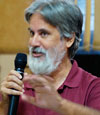 |
MICHAEL W. MORGAN Mike Morgan has been involved with helping the Deaf to get access to university-level courses in India, Ethiopia, and elsewhere. He is proud of having been able to help in the Supreme Court case in Nepal giving the Deaf the right to obtain a drivers' license. Please see: • Who Gets to Say Who I Am? Identity and Dignity (Deaf and Other Perspective) (Video of the Introduction into the Dignilogue | Video of the Dignilogue | WDU Message with Dr. Rajesh Dixit | WDU Message with Evelin Lindner), Dignilogue facilitated by Mike Morgan on 17th August 2017 at the 29th Annual Conference of Human Dignity and Humiliation Studies 'Dignity in Times of Globalisation', in Indore, India, 16th – 19th August 2017. |
 |
KATYAYANI SINGH Katyayani Singh has completed her Ph.D. in Political Science in 2018. She is also a research member in the Nonkilling Political Science Research Committee of the Center for Global Nonkilling, Hawaii, USA. The goal of this organization is to find ways to decrease the killings globally. She works as an assistant professor at Jagran Lakecity University in Bhopal, India, where she teaches political science and history to the students of law. She would like to pursue research and teaching also in the future, as she feels the two are connected and if treated independently the two would be futile. Her writing is mostly directed towards hope, peace, and love. As an independent writer, she has a blog "Be the Change to See the Change" to inspire people, where she writes poetry and articles. The subject of humanities is very much ignored in India, as it is in today’s world in general. She, therefore, wants to uplift this subject through her teachings and research so as to promote love and humanity. Her important publications include: • Studies on Setting up a Nonkilling Index as an Approach to Nonviolence and Global Peace (Video of the Introduction into the Dignilogue | Video of the Dignilogue | WDU Message| Pdf, co-authored with Anoop Swarup), Dignilogue facilitated by Katyayani Singh on 17th August 2017 at the 29th Annual Conference of Human Dignity and Humiliation Studies 'Dignity in Times of Globalisation', in Indore, India, 16th – 19th August 2017. • Singh, Katyayani, and Anoop Swarup (2018). "A Global Nonkilling Index as a Critical Measure of Human Development and Progress." In International Journal on World Peace, 35 (3), p. 45–68. • ‘Leadership, Followership and the Nonkilling Paradigm’ in Give Nonkilling a Chance, ed. Anoop Swarup, 2019. • The Nonkilling Paradigm: For World Peace and Enlightenment. • ' A Comparative Study on Killing Vs Nonkilling Approaches from Around the Globe' in Jagran International Journal on Contemporary Research, Vol. VI. (2019) ISSN: 2320 – 9372 (pg. 41–49). • 'Progress and Peace: Enlightenment Now From Both Science And Religion' in International Journal on World Peace, Volume XXXVI No. 4. (2019) ISSN 0742-3640 (pg 33-52). • Singh, Katyayani, and Anoop Swarup (2019). "Progress and Peace: Enlightenment Now from Both Science and Religion." In International Journal on World Peace, 36 (4), p. 31–49. |
| EDWARD J. EMERY Edward J. Emergy is a Member of the HumanDHS Global Core Team and HumanDHS Education Team. He is the Chief Representative to the United Nations for World Information Transfer, an international NGO in General Consultative Status with the Economic and Social Council at the United Nations. He is also a Senior Partner with Ethical Futures and a psychoanalyst in private practice. Dr. Emery has lectured and taught internationally. Please see: • An Ethics of Engagement: Shame and the Genesis of Violence, paper presented at a Conference of the Peacemaker Corps Association in Honor of Sergio Vieira de Mello "Peacemaking in the Family: Nuclear, Community and Global" United Nations Headquarters, February 27, 2004. Forthcoming in Psychotherapy and Politics International in 2004 (2) 3. • Musings on Shame and Idolization, abstract presented at the 2007 Workshop on Humiliation and Violent Conflict, Columbia University, New York City, December 13-14, 2007. |
|
| VIVIAN LUN Vivian Lun is also a Member of the HumanDHS Global Core Team. She has recently obtained the degree of M. Phil. in Psychology from the Department of Psychology, The Chinese University of Hong Kong, with Michael Harris Bond as academic advisor. In her undergraduate and postgraduate years, she worked on projects concerning individuals' responses to interpersonal harm and interpersonal relationship harmony. She is also interested in cross-cultural research, because she believes they help understand and respect the similarities and differences among people from different cultural backgrounds. |
|
| SOWAN WONG (SOPHIA) Sowan Wong is also a Member of the HumanDHS Research Team, and of the Global Coordinating Team. She has recently obtained her Ph.D in psychology from Brunel University, West London, the U.K., under the supervision of Prof. Robin Goodwin. Her thesis was a cross-cultural study on work-family conflict and marital satisfaction. She received her M.Phil and Bachelor's degree in Psychology from the Chinese University of Hong Kong, with Prof. Michael Harris Bond as her academic supervisor. She is interested in looking at culture influences on the attitudes, values, and beliefs of individuals, which then influence individuals' behaviors. She is currently involved in devising and delivering an intervention program which aims to enhance parents' parenting competencies, which can in turn lead to enhanced parent-child relationship. The program is being conducted in a local community in Hong Kong. The ultimate goal of the program is to promote family harmony, happiness, and health. Selected publication: Selected publication: • Measuring Emotionality across Cultures: Self-Reported Emotional Experiences as Conceptualizations of Self (retrievable also from http://self.uws.edu.au/Conferences/2002_CD_Wong_&_Bond.pdf), in Graven, Rhonda G., Marsh, Herbert W., and Simpson, Katrina B. (Eds.), Proceedings of the 2nd International Biennial Conference. Self-Concept Research: Driving International Research Agendas (Sydney: SELF Research Center, University of Western Sydney, 2002). • Wong, S., & Goodwin, R. (2007). Predicting marital satisfaction across cultures. In A. Chybicka, & M. Kazmierczak (Eds.), Appreciating diversity: Cultural and gender issues.(pp. 171-109). Kracow, Poland: Oficyna Wydawnicza "Impulse". • Wong, S., Bond, M. H., & Rodriguez Mosquera, P. M. (2008). The influence of cultural value orientations on self-reported emotional expression across cultures. Journal of Cross-Cultural Psychology, 39, 224-229. (Impact Factor: 1.524). • Wong, S., & Goodwin, R. (2009). The impact of work on marriage in three cultures: A qualitative study. Community, Work, and Family, 12, 213-232. • Wong, S., & Goodwin, R. (in press). Exploring marital satisfaction across three cultures: A qualitative study. Journal of Social and Personal Relationships. (Impact Factor: 0.870). |
|
| ANA LJUBAS Ana Ljubas is currently working on her doctoral thesis at the Department of Psychology, University of Regensburg, Germany, examining the influence of culture on communication styles, intimacy and conflict resolution practices in intercultural couple relationships. She is looking at how mixed couples (German-French) have developed their communication patterns and established intimacy, taking into account their different cultural background and reflecting upon gender roles. At the moment she is conducting interviews with mixed couples (being married vs. having been divorced) of different ages, one sample living in different regions of Germany, the other sample living in several French departments. Based on initial interviews a questionnaire will be designed which will be used for a comparative study also including non-mixed couples (living in France/Germany). According to those empirical findings that underline the cultural component of the expression of feelings and thoughts in the context of couple relationships, she is looking at how the investigated couples are managing their specific situation highlighting affective, behavioral and cognitive components of their experiences. |
|
| MIRIAM MARTON Miriam H. Marton is also a Member of the HumanDHS Global Core Team. Miriam Marton, attorney and social worker, is the William R. Davis Clinical Teaching Fellow at the Asylum and Human Rights Clinic, University of Connecticut School of Law. Professor Marton teaches and supervises law students representing refugees seeking asylum and other legal relief in the United States. Professor Marton also conducts research on the particular issues facing female refugees fleeing gender-based violence, both in the countries-of-origins and in the United States' legal system. Professor Marton's research interests also include training lawyers to work with survivors of gender-based violence. Please see: • Relevance of Sexual Violence Against Female Noncombatant Victims of Destructive Conflict in the Study of Humiliation, paper presented at the 2004 Workshop on Humiliation and Violent Conflict, Columbia University, New York City, November 18-19, 2004. • Terrorism and Humiliation, note presented at Round Table 1 of "Beyond Humiliation: Encouraging Human Dignity in the Lives and Work of All People," 5th Annual Meeting of Human Dignity and Humiliation Studies in Berlin, 15th -17th September, 2005. • Humiliation in the Home: Survivors of Childhood Rape in the United States, note presented at Round Table 3 of "Beyond Humiliation: Encouraging Human Dignity in the Lives and Work of All People," 5th Annual Meeting of Human Dignity and Humiliation Studies in Berlin, 15th -17th September, 2005. • Humiliation and Asylum Seekers, abstract presented at the 2011 Workshop on Transforming Humiliation and Violent Conflict, Columbia University, New York City, December 8-9, 2011. |
|
ANNITA MILICEVIC |
|
| ANA LJUBINKOVIC Ana Ljubinkovic is also a Member of the HumanDHS Global Core Team. Ana Ljubinkovic, Ph.D., received her Ph.D. in Sociology in December 2008 at the University of Essex (UK), after attaining a Laurea in Sociology from the Università degli studi di Roma (Italy) and an M.A. degree in Theory and Practice of Human Rights from Essex (UK). Her doctoral thesis entitled The Victims of Humanitarian Intervention: a study of the psycho-social impact of the UNOSOM involvement in Somalia investigates long-term psychosocial effects of violence generated by military humanitarian interventions on the recipient population. Ana has four years of teaching experience in the Sociology Department, Centre for Psychoanalytic Studies and Human Rights Centre at the University of Essex, in the areas of sociology of human rights, refugee studies, and race, class and gender studies. She has worked as a researcher for CARE International in Kenya looking at the attitudes of Somali refugees in Dadaab Refugee Camps towards their future (2005) and, as a member of CTAR (Centre for Trauma, Asylum and Refugees), at the psychosocial needs of the Refugee population in Dadaab (2007 and 2008). She conducted a research for the UN Office for the Coordination of Humanitarian Affairs (UNOCHA) in Nairobi and prepared a report entitled Attitudes of the Somali People in Kenya Towards Potential Deployment of IGAD Forces in Their Home Country (2005). Ana is a Research Team member of Human Dignity and Humiliation Studies since 2005. Please see Milk and Urine: Intentional Humiliation as a part of Humanitarian Assistance, note presented at "Beyond Humiliation: Encouraging Human Dignity in the Lives and Work of All People," 5th Annual Meeting of Human Dignity and Humiliation Studies in Berlin, 15th -17th September, 2005. Please see also From Violent to Subtle Humiliation: Case of Somali Victims of UNOSOM Living in the Refugee Camps in Kenya, note presented at Round Table 1 of the 2005 Workshop on Humiliation and Violent Conflict, Columbia University, New York City, December 15-16, 2005. See furthermore Is Hope the Last to Die? Research Study On The Situational Analysis In The Dadaab Refugee Camps, 2005, and Report on Field Research Conducted in Dadaab Refugee Camps (16.05.05 - 01.06.05), 2005. |
|
| DEEPAK TRIPATHI Deepak Tripathi is also a Member of the HumanDHS Global Advisory Board. Deepak Tripathi is a British historian and researcher whose interests include the Middle East and South Asia, great power rivalries and the United States in the contemporary world. He has a BA in politics, economics, sociology and English, a Post-Graduate Diploma in Business Administration and a PhD in social science. The title of his doctoral thesis was A Critical Study of the Afghanistan and Iraq Wars: Interests, Motives, Actions and the Makings of a Culture of Violence. He is the author of five books and more than a hundred and fifty articles. Tripathi’s books include a trilogy encompassing Imperial Designs: War, Humiliation and the Making of History (forthcoming 2013), Breeding Ground: Afghanistan and the Origins of Islamist Terrorism (2011) and Overcoming the Bush Legacy in Iraq and Afghanistan (2010). He has lectured in Britain and abroad and his articles have appeared in the Economist and the Daily Telegraph of London, as well as journals and periodicals around the world. Before turning to academic research, Tripathi had a long career as a journalist (1974-2000), primarily with the BBC, where he was a correspondent, editor and commentator. In the early 1990s, he set up the BBC bureau in Kabul and was the resident correspondent in Afghanistan. He has also reported from Syria, Pakistan, Sri Lanka and India. Tripathi is a member of the Political Studies Association and lives near London. Deepak Tripathi has published A Journey Through Turbulence in Dignity Press in 2013. Please see: • Imperialism & Humiliation, a video presentation for HumiliationStudies.org, where Deepak Tripathi explains the relationship between imperialism and humiliation. • A Journey Through Turbulence, Lake Oswego, OR: Dignity Press, 22nd March, 2013, with a Foreword by Victoria Fontan, a collection of Deepak Tripathi's writings in the last decade, covering a vast landscape and many subjects, from the United States, Britain and the European Union to conflicts in South Asia and the Middle East, the Arab Awakening, the power shift from west to east, and the new great game in the east. These essays have an insightful analysis of the present in the context of the past. • A Journey Through Turbulence, video, created on 29th March 2013, in connection with his book A Journey Through Turbulence. • Imperial Design: War, Humiliation and the Making of History, published on 8th May 2013, is a video about Imperial Designs, the final volume of Deepak Tripathi's trilogy including Breeding Ground: Afghanistan and the Origins of Islamist Terrorism and Overcoming the Bush Legacy in Iraq and Afghanistan published by Potomac Books, an imprint of the University of Nebraska Press. • Dignity Manifesto (Video | Pdf created on November 21, 2021), "Message to the World," a contribution to the 2021 Workshop on Transforming Humiliation and Violent Conflict, Virtual, Columbia University, New York City, December 9 – 10, 2021. |
|
ZAHID SHAHAB AHMED |
|
| ZINTHIYA GANESHPANCHAN Zinthiya Ganeshpanchan is a doctoral research student at Loughborough's Midlands Centre for Criminology and Criminal Justice, focusing her doctoral dissertation upon "Women and Conflict a case study of Sri Lanka." Her special interest is Gender and Violence. Zinthiya is currently working for Homeless International, an International Development Agency working on Urban Poverty. Before joining Homelss Internatioanl she worked for the Newcastle City Council Regional & European Programmes Team and was a voluntary worker for the North East Refugee Services. Zinthiya's aim is • to study women and conflict in relation to Sri Lanka, exploring ethnic nationalism's historical and cultural forms and meanings; • to map the forms and impact of women's involvement in conflict and violence; • to analyse the political, social and cultural impact of women's involvement in conflict/war, specifically in relation to identity formation and political involvement; • to explore to what extent women have accommodated, participated and/or resisted relations with national movements and with the state, their families and militarism; • to develop a analysis on women in ethnic national conflicts re-thinking the issue of difference' with specific focus on re-representation, identity and political involvement; • a related objective is to explore and analyse issues of gender specific harms in conflict, and the extent to which such harms have been recognised in the determination of refugee status and intended to fill in the gap in the current literature on women and conflict with specific focus upon Sri Lanka. Zinthiya is kindly building on our parents union idea and developing it further, please see Parents and Equal Dignity. Please see Domestic and Gender based Violence among Refugees and Internally Displaced Women (2005). See also New Parenting, a text presented at Parents and Equal Dignity, Human Dignity and Humiliation Studies. |
|
| JOSEPH A. AGARD Joseph A. Agard is a Mediator/Arbitrator and Guardian Ad Litem in New York City. He studied EU and US Law, dispute resolution and international affairs in Europe and the United States. He holds a Masters Degree in law (UK), also advanced qualifications in international arbitration, transnational civil litigation, intercultural negotiation/ mediation law and practice and international affairs. A former Guyana Scholar, European Fellow, senior public servant also police detective Joseph was an 'A' student at New York University. He has lived, worked and studied in the UK, USA, France, Germany, Belgium Luxembourg and Holland and received training and exposure at the European Court of Justice, European Court of First Instance, European Court of Auditors, The European Parliament, European Commission, European Council, The European Reconstruction Bank; The French Parliament and French Supreme Court; the United Nations in New York; also with several humanitarian organizations. Among other professional associations Joseph is a member of the American Society of International Law. He is affiliated with the United Nations Association of USA, the City University of New York International Center (CUNY), the Medicare Rights Center as a Medicaid/Medicare Counselor also with several other NGOs. In 2004 he was awarded the Volunteer Service Award by CUNY Graduate Center also the Certificate of Appreciation by the Medicare Rights Center for outstanding voluntary service. Joseph studied at the Faculty of Law Graduate School, University of Leicester, UK; University of Paris II, Paris Institute of European Legal Studies, France; University of Humboldt Faculty of Law, Germany; Tulane University School of Law, USA and New York University, Center for International Affairs, USA. |
|
| ERIN HELFERT Erin Helfert holds a deeply personal and professional interest in the theory and concepts of Human Dignity and Humiliation, and its numerous applications to human rights, peace and reconciliation, state building, and women's empowerment. This interest has been fostered through her work in women-led economic growth programs, and gender-based violence (GBV) issues; as well as her personal experiences in the area of GBV in North Africa. Erin Helfert has an MA in International Trade and Development from the Université Paris XI, and an MA in International Relations from the American Graduate School of International Relations. She currently resides in New York City. Erin has several years' experience in the areas of gender, human rights, economic growth, and sustainability. She has worked on a variety of donor funded and private sector projects; including those with the US Agency for International Development (USAID), the Union of Foreign Chambers of French Commerce and Industry (UCCIFE). She has lived and worked in countries throughout Africa, Central America, and the European Union. Erin recently partnered with a fashion industry veteran to form the Nairobi-based production company, Panâh, whose mission is to provide a link between designers and skilled artisans in the Great Lakes region of Africa, while engaging local actors to build capacity and expand their personal business opportunities. She is also an active member of the global group, Maiden Nation, whose mission is to empower women through ethical fashion. Please see: How Does the U.S. Government Handle Sexual Assault Abroad?, by Liz Welch, Cosmopolitan, December 10, 2014. |
|
|
JOSÉ CALVO GONZÁLEZ |
|
| SEEMA SHEKHAWAT Seema Shekhawat holds a doctoral degree from the University of Jammu, J&K on the topic “Impact of Conflict Situation, Militancy and Displacement on Women: A Study of Jammu Region.” She has written a book titled “Conflict and Displacement in Jammu and Kashmir: The Gender Dimension.” She works together with Debidatta Aurobinda Mahapatra, who holds a doctoral degree from the Jawaharlal Nehru Uni-versity, New Delhi on the topic “Russia and the Kashmir Issue Since 1991: Perception, Attitude and Policy.” He has written a book titled “India-Russia Partnership: Kashmir, Chechnya and Issues of Convergence.” Both have been doing research on the Kashmir across the line of control. They are also editors of quarterly newsletter Across LoC. Both are affiliated to the Centre for Strategic and Regional Studies, University of Jammu. Debidatta Aurobinda Mahapatra is full time political science faculty at Florida State College in Jacksonville and Seema Shekhawat is teaching at this college and at the University of North Florida. Please see: • Conflict and Displacement in Jammu and Kashmir: The Gender Dimension, Jammu, India: Saksham Books International, 2006. • Conflict in Kashmir: The Gender Dimension, abstract presented at the Second International Conference on Multicultural Discourses, 13-15th April 2007, Institute of Discourse and Cultural Studies, & Department of Applied Psychology, Zhejiang University, Hangzhou, China, as part of the 9th Annual Meeting of Human Dignity and Humiliation Studies. • Shekhawat, Seema & Mahapatra, Debidatta Aurobinda (2006), Kargil Displaced of Akhnoor in Jammu and Kashmir - Enduring Ordeal and Bleak Future: A Report on the Border Displacement and Return in Akhnoor. • Mahapatra, Debidatta Aurobinda, and Shekhawat, Seema (2007), Conflict in Kashmir and Chechnya: Political and Humanitarian Dimensions. Delhi, India: Lancer's Books. • Women in Security, Conflict Management and Peace, in The Icfai Journal of Governance and Public Policy, Vol. 2, No. 4, pp. 43-56, December 2007. • Mahapatra, Debidatta Aurobinda and Shekhawat, Seema (2008), Viewing Kashmir Conflict through the Prism of Dignity and Humiliation, abstract presented at the 2008 Workshop on Humiliation and Violent Conflict, Columbia University, New York City, December 11-12, 2008. • Mahapatra, Debidatta Aurobinda and Seema Shekhawat (2008), The Peace Process and Prospects for Economic Reconstruction in Kashmir, in Peace and Conflict Review, Vol. 3, No. 1, Fall 2008, pp. 1-17. • Conflict Induced Displacement: The Pandits of Kashmir, Conflict Trends, Issue 4, 2009., pp. 31-37. |
|
DEBIDATTA AUROBINDA MAHAPATRA |
|
| LONE ALICE JOHANSEN Lone Alice Johansen wrote her master thesis on African conflict resolution traditions (ubuntu) effect on perceived humiliation. She wants to investigate how the humiliation that is connected to being part of an ethnic/cultural group in conflict can be reduced by using ubuntu. To explore Ubuntu's effect on perceived humiliation she is going to do an empirical study at a dialogue/conflict resolution seminar in Norway. Here students from Sudan, Great Lakes Region and Ethiopia/ Eritrea will participate as representatives for their conflict areas. She wants to use a method combining questionnaire, participant observation and semi-structured interviews. The semi-structured interviews will be conducted before and after the dialogue seminar. The interviews (pre and post the seminar) and the participant observation will focus only on one of the three groups who are going to take part in the ISFiT Dialogue seminar, and at the post seminar interview it may be possible to conduct a group interview. As opposed to the qualitative approach to the study, all of the three groups will receive a questionnaire before and after the seminar (see project description). She has tried to reformulate the "human inventory index" into an index for humiliation experienced as a group member. She searches for other ways of measuring humiliation that are more connected with conflict and experienced humiliation because of ones group belonging and asks whether there is a way to measure humiliation that is more related to how people experience humiliation in conflict. Please see here her project African Solutions to African Intergroup Conflicts: Ubuntu and Humiliation, A Study of Ubuntu and Its Effect on Perceived Humiliation in an Interactive Track Two Dialogue Seminar. |
|
| PAMELA M. CREED Pamela M Creed earned a doctorate from the Institute of Conflict Analysis and Resolution at George Mason University in Arlington, Virginia. Her dissertation, titled Myth, Memory and Militarism: The Evolution of an American War Narrative, explored narrative connections between macro and micro levels. In particular, it examined the relationship of culture, emotion and agency in the dramatic construction, mobilization and acceptance of an American war narrative and later of individual counter narratives. The study takes the events of 9.11 as a traumatic trigger and then demonstrates that the storylines in the 9.11/Iraq War narrative patterns were anchored more in American mythological constructs, public memories and militarism than content about terrorism or Iraq. In the second phase of her research she analyzed micro-narratives from veterans of the Iraq War by exploring how they understood the presented storylines. She attempted to discern the strength of the cultural influence inherent in the narrative patterns. Her research focused on locating shifts in attitudes or perceptions, which may have resulted in the repositioning of self or discourse. Throughout the study she examined the role of emotions, particularly anger, pride (honor), shame and humiliation. Drawing on work done by Lindner and Hartling, Pamela located indicators of four types of humiliation in the 9.11/Iraq War narrative patterns that occur repeatedly until the March 2003 invasion. She then analyzed those patterns in the context of a humiliation cycle and conflict escalation. Pamela has also done research with Joseph Montville on the relationship between the North and South in the United States. She studied the historical Northern narrative of insult and disdain toward the South in an attempt to enhance understanding of the historical alienation between the white North and the white South. This relationship has been marked by cultural, religious, and intellectual tensions, which have created an identity-based split where resentments against Northern insult and exploitation, once strictly centered in the South, are now dispersed throughout the United States in the so-called 'red' states. Pamela presented this work with Joseph Montville in April 2005 at the Esalen Institute Center for Theory and Research. She also presented this study at University of Massachusetts, Boston in November 2005 at the "New Generation of Ideas" conference. Pamela holds a M.Ed. from the University of Maryland and a BA in History from the American University in Washington, DC. In the summer of 2006 she studied local educational policy for disadvantaged populations under a Fulbright Scholarship in South Africa. She currently resides in Belgrade. Please see here: • The Dominant American Narrative between 9/11/01 and the Invasion of Iraq, an introduction to a potential dissertation, presented at the 2006 Workshop on Humiliation and Violent Conflict, Columbia University, New York City, December 14-15, 2006. The dissertation aims to analyze the dominant American narrative between 9/11/01 and the invasion of Iraq through positioning theory and the literature on humiliation and conflict. • An American Conflict of Mind: Competing Narratives of National Identity and Values, 2007. |
|
| ZUZANA LUCKAY MIHALČINOVÁ |
|
 |
LUYOLO SIJAKE Luyolo Sijake is a Co-Founder of Qwili in Cape Town, Western Cape, South Africa. Qwili's mission is to empower merchants to offer value-added services to consumers who often face barriers to accessing these services. He shared on 6th June 2018, while living in Beijing, China, formally being a student of Economics: The active acknowledgement of the experience of humiliation in China and the regularity with which it is invoked in relations to this country’s developmental process has brought me to consider my research focus: how humiliation and the economy interact and how the dynamic relationship between the two affects outcomes, particularly economic outcomes. The work that has been done around the theme of humiliation has been profoundly eye-opening for me, for this I am deeply grateful to members of the Humiliation Studies Global Research Team, others conducting related research and all working to foster dignity. |
|
GABRIELA SAAB Gabriela Rodrigues Saab Riva is also a Member of the HumanDHS Board of Directors and of the HumanDHS Education Team. Gabriela Saab has earned her PhD from the University of São Paulo. She holds two Masters in Public International Law and Human Rights (from the University of Sao Paulo and from the Université Catholique de Louvain). Her studies focus on human rights, environmental protection, and armed conflicts. She graduated from the University of São Paulo with a Bachelor's Degree in Law and has completed the Sciences Po International Program in Paris, where she studied sustainable development policies. At that university she also published her theses on "The Treatment of Child Soldiers in International Law” and on “The Right to Water as a Human Right”. Please see: • The Recruitment of Child Soldiers: Humiliation Compromising Childhood Abstract presented at the 2009 Workshop on Humiliation and Violent Conflict, Columbia University, New York City, December 10-11, 2009. • The Treatment of Child Soldiers under International Law, Paper presented at the 2009 Workshop on Humiliation and Violent Conflict, Columbia University, New York City, December 10-11, 2009, based on O Tratamento da Criança-Soldado no Direito Internacional (The Solder-Child in International Law), Tese De Láurea, Faculdade de Direito da Universidade de São Paulo, Departamento de Direito Internacional. • Gabriela Saab: Creating International Law for Dignity (Português/Inglês, English/Portuguese) Português: Este vídeo é bilíngüe (Português/Inglês). Foi criado na São Paulo no dia 4 de junho de 2012. Gabriela Saab compartilha suas opiniões sobre a dignidade e suas contribuições para a iniciativa da Universidade Mundial para Dignidade com Evelin Lindner. English: This video is bilingual (Portuguese/English). It was created in São Paulo on the 4th June 2012. Gabriela Saab shares her views on dignity and her contributions to the World Dignity University initiative with Evelin Lindner. See also some still pictures from 4th June 2012. See, furthermore, the work by Judge Antônio Augusto Cançado Trindade, see, for example, his chapter "Humankind as a Subject of International Law" in his book International Law for Humankind: Towards a New Jus Gentium (2010). • Gabriela Saab Apresenta a Universidade Mundial para Dignidade / Gabriela Saab Presents the World Dignity University (Português/Portuguese) Este vídeo foi criado na CHDEP, Jardim Ângela, São Paulo no dia 1 de junho de 2012. Ury fez a gravação. English: This video was created in CHDEP initiative in Jardim Ângela, São Paulo on 1st June 2012. Ury did the recording. See also some still pictures. |
| MARIANA FERRAZ Mariana Ferraz is a PhD candidate at the Law School of the University of São Paulo and is currently researching policies and legal mechanisms to prevent child obesity. She holds a Master Degree in Human Rights with a thesis that researched the Human Right to Food and Sustainability in the Food System. Dignity is a key element for the fulfillment of the right to food once it can only be assured in a dignifying environment both for producers and consumers. Dignity in the food system means fair trade, opportunities for small producers, healthy food accessible for all, respect to local culture, and for nature. Mariana is also enthusiastic about visual arts and loves to make videos and mini-documentary films. Please see: • Mini-Documentary of the Annual Human Dignity and Humiliation Studies Workshop on Transforming Humiliation and Violent Conflict "The Globalization of Dignity," December 8 - 9, 2016. The 13th Workshop on Transforming Humiliation and Violent Conflict took place at Columbia University in New York City, December 8 - 9, 2016. The entire HumanDHS network very much thanks Mariana Ferraz for making this wonderful mini-documentary! Thank you, dear Mariana, and also you, dear Gaby Saab, for inviting so many of us into this documentary, from Janet Gerson to David Yamada, Michael Perlin, Philip Brown, Kebadu Mekonnen Gebremariam, David Yau-Fai Ho! Thank you for the song "A Wonderful World" in the background, the very song that David Yamada brought to us! Linda Hartling is the Director of the Human Dignity and Humiliation Studies (HumanDHS) network. Evelin Lindner is the founding president of the Human Dignity and Humiliation Studies network. • Interview with Evelin Lindner - Challenges of our Time; Learning to Connect, December 8, 2016. The 13th Workshop on Transforming Humiliation and Violent Conflict took place at Columbia University in New York City, December 8 - 9, 2016. We very much thank Mariana Ferraz for making this interview! Thank you, dear Mariana, and also you, dear Gaby Saab, for inviting so many of us into wonderful interviews! • Video about farmers market in NYC |
|
| OLGA V. LEHMANN Olga shared her biographical background on 29th January 2015: I am an activist of passion, a believer of the miraculous power of life, a searcher and researcher of silence, an ancient soul where poetry narrates our permanent and creative search and honor for love. I am an idealist humanist who defends the sacred value of human life. I hold a bachelor degree in psychology from La Sabana University (Colombia), and a Laurea Magistrale in Clinical Psychology: Health, Family relations and Community Interventions from Università Cattolica del Sacro Cuore (Italy). I am currently a Ph.D candidate in psychology, from Norges teknisk-naturvitenskapelige universitet -NTNU (Norway), working on the dissertation "Cultural Psychology of Silence: Poetics of Daily Life in the Borders of Existence and Experience". I am a lecturer in "Experts in Team -and interdisciplinary course about social interaction and project planning- and Social Psychology as well. My academic and personal interests include death beliefs, logotherapy and existential analysis, humanistic psychology, spiritual paths, silence in ordinary life, emotions, poetic instants, cultural psychology and Idiographic Science. I have written some papers and chapters regarding silence and poetic instants from the perspective of developmental cultural psychology, and edited the book "Acompañar la Finitud: optimismo, sentido y trascendencia ante la incertidumbre del dolor, el sufrimiento y la muerte", which is a volume on death, dying, suffering, pain and meaning of life from the perspective of Viktor Frankl's logotherapy (available in Spanish and Portuguese). |
|
 |
SAULO FERNÁNDEZ ARREGUI |
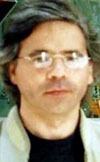 |
FRANCISCO CARDOSO Francisco Cardoso is a psychologist and professor at the Education and Psychology Department of the University of Trás-os-Montes e Alto Douro (UTAD) in Portugal. He teaches motivation and emotion at the experimental and clinical psychology laboratory, and clinical intervention in adults. With respect to general domains, his interests are the study of the interrelation between affect, cognition, and extended cognition. In clinical fields, he develops studies in phenomenological psychology, harm behaviors effects, such as humiliation, and new developments of psychotherapy, such as ecopsychotherapy. He is an invited member of the UNESCO chair on Geoparks at UTAD, the LOCUS group, and is honored to be invited to the Global Research Team of the Human Dignity and Humiliation Studies (HumanDHS) group. See ResearchGate for some of his publications. |
| METTE LEBECH Mette Lebech lectures in philosophy at the National University of Ireland, Maynooth since 1998. She has lectured and published widely on the idea of Human Dignity, on bioethics and on the philosophy of Edith Stein. In 2006 she defended her thesis The Identification of Human Dignity. Hermeneutic, Eidetic and Constitutional Analyses in the Light of the Phenomenology of Edith Stein in Leuven, Belgium. She is currently the President of the Irish Philosophical Society and the General Editor of its Yearbook. Please see here is most recent book publication: • On the Problem of Human Dignity: A Hermeneutical and Phenomenological Investigation,Würzburg: Könighausen und Neumann., 2009. |
|
ARCHANGEL BYARUHANGA RUKOOKO ("RUKOOKO") |
|
| OMAR EL-NAHRY Omar El-Nahry is graduating from University College London with a BA in European Social and Political Studies in September 2013 and plans to pursue a Master's degree in International Relations and Political Science. His research interests include armed conflict, arms control and identity formation and development in subnational groups. • Forged on the Battlefield: The Influence of Armed Conflict on the Consolidation of Saharawi Identity, Undergradute Dissertation at the Department of European Social and Political Studies, University College London. |
|
| TONYA R. HAMMER Tonya R. Hammer is also a Member of the HumanDHS Global Core Team, and the Global Coordinating Team. Dr. Tonya R. Hammer is an Assistant Professor of Counseling at Oklahoma State University-Tulsa. In 2008, she received her PhD in Counselor Education and Supervision from St. Mary's University in San Antonio, Texas, with an emphasis on Relational Cultural Theory and Social Justice. Her master's degree is in Psychology and Counseling from the University of Mary-Hardin Baylor. Dr. Hammer is actively involved in her professional organizations including serving on the board for the Association for Lesbian, Gay, Bisexual and Transgender Issues in Counseling, a division of the American Counseling Association. Dr. Hammer's research includes the areas of humiliation and language particularly with regard to marginalized populations, relational cultural theory, and the area of professional identity and competence in the counseling field. Dr. Hammer has written on issues impacting women both as clients and as professionals. Her research and areas of interest with regard to women include controlling images in film as they pertain to women's career choices and mentoring of female faculty in counseling education. Her work as a professor and a counselor is directed by relational cultural theory (RCT). In that regard she has worked with Alexander Street Press and Microskills Training to produce a training video on RCT. Her clinical work has included work with children and adolescents ranging from pre-K through high school. While she worked with both boys and girls, a majority of her emphasis was on working with adolescent girls dealing with relational aggression and body image. Since that time she has also done private practice as a contract therapist working with men and women in areas of depression and anxiety as well as relational issues. In 2008, Tonya finished her doctoral dissertation entitled: Myths, Stereotypes, and Controlling Images in Film: A Feminist Content Analysis of Hollywood's Portrayal of Women's Career Choices, at the Counselor Education and Supervision department at St. Mary's University, San Antonio, Texas (the dissertation can be ordered through ProQuest). She summarizes her disseration as follows: "Myths, stereotypes and controlling images are imbedded in cinema. Women can be disempowered and marginalized by these images and it is important to explore the images found in this medium and the potential they have to affect women’s career choices. The content analysis of 81 films revealed themes including but not limited to the idea that relationships should be secondary to careers in women’s lives; women are secondary to men in the workplace; women in power are depicted in isolation; women are portrayed in traditional careers more than non-traditional careers; regardless of career choice women are often depicted in a negative light and women of ethnicities other than White are not adequately represented in mainstream media, in any area, much less with regard to career choices. Through film women are learning that they are secondary to men in one more area of society and that, in essence, there is nothing wrong with this perception." Prior to entering the counseling field Tonya was a paralegal for fourteen years. She worked as a case manager with Communities in School, San Antonio, a non-profit organization whose mission is to help students stay in school and prepare for life. Communities in Schools' main focus is working with students who have been determined by the state to be "at-risk," a classification in itself that can be humiliating regardless of the conditions that led to the labeling. Tonya's research areas also include incorporation of relational cultural theory into career counseling, the use of film in counseling, and the issues of humiliation and shame surrounding malpractice claims against therapists and clinical supervisors. Tonya writes: "My goal or vision statement for my professional career is to teach on the college level. Specifically, I would like to teach on the graduate level in the field of counselor education. I am inspired and challenged by the dialogue that is entered into in the classroom when you have a passionate educator. I want to be that passionate educator and be able to share my passion for RCT and for social justice advocacy, including the work of the humiliation studies network. I see this being done not only in the classroom but through the written word as well.... Personally and professionally I want to use every opportunity to further an understanding of Relational Cultural Theory and Social Justice. I see both as being vehicles through which we can interrupt or end the cycles of humiliation that occur in our everyday lives both on a personal and a global level." Please see: • The Global Impact of Humiliation on Relationships and World Peace, presentation proposal together with Dana Comstock to the Third International Women's Peace Conference, Dallas, Texas U.S.A., July 10-15, 2007. • The Role of Dignity and Humiliation for Myths, Stereotypes, and Controlling Images in Film, abstract presented at the 2008 Workshop on Humiliation and Violent Conflict, Columbia University, New York City, December 11-12, 2008. • together with Selma Yznaga, Shunned by Difference: The Intersection of Humiliation and Discrimination, abstract presented at the 2010 Workshop on Transforming Humiliation and Violent Conflict, Columbia University, New York City, December 9-10, 2010. |
|
SALMAN TÜRKEN |
|
| CHANDER SHEKHAR Chander Shekhar, Ph.D., hails from a Dalit family (Jatavs) of a village in northern Indian. He is currently Associate Professor at the Department of Mathematical Demography and Statistics, International Institute for Population Sciences (Deemed University) Mumbai. He has been involved in various research projects in Population Studies and Public Health funded by the national and the international agencies. Presently, he is coordinator of a nationwide District Level Household and Facility Survey under the Reproductive and Child Health (RCH-DLHFS) funded by the World Bank. He is also one of the two principal investigators of the study entitled “Elderly Abuse in North Indian Families”. He has conducted various capacity building programmes in South Asia. He has been associated with the research studies commissioned by the Planning Commission of India, the National Commission on Population, Ministry of Health and Family Welfare, Govt. of India and UNDP. |
|
YASHPAL JOGDAND |
|
| SILJE RIVELSRUD Silje Rivelsrud (Norway) is a master student at Peace and Conflict Studies at the University of Oslo. She has a BA in social science, with psychology as main subject, from the University of Science and Technology (NTNU) in Trondheim, Norway. Please see: The Sahrawi Refugees and Their National Identity: A Qualitative Study of How the Sahrawi Refugees Present Their National Identity in Online Blogs, Silje Rivelsrud Master's Thesis in Peace and Conflict Studies, The Department of Political Science, The Faculty of Social Sciences, University of Oslo, May 2010. |
|
| JENNIFER KIRBY Jennifer Kirby is also a Member of the HumanDHS Global Coordinating Team, of the HumanDHS Global Core Team, and of the HumanDHS Education Team. She graduated from Appalachian State University with a Bachelor's Degree in Biology. At the university she published her senior thesis on "The Nature of Holocaust Survivor Poetry: The Power of Poetic Expression." She is currently the Administrative Assistant/Event Coordinator for Appalachian State University's Center for Judaic, Holocaust, and Peace Studies. As she continues her academic interests, Jennifer plans to pursue graduate education in genocide and peace studies while incorporating her interest in humiliation studies within her field of study. In her free time Jennifer loves reading, traveling, and spending time with animals of all kinds. |
|
| SARWAR ALAM Sarwar Alam, Ph.D., has been a postdoctoral fellow in the department of Middle Eastern and South Asian Studies at Emory University, Atlanta, Georgia since 2007. Sarwar Alam received his doctorate in Public Policy from the University of Arkansas, Fayetteville, in 2006. He previously obtained baccalaureate and postbaccalaureate degrees in Political Science from the University of Chittagong, Bangladesh. He also obtained an MA in Human Resource Development from Pittsburg State University, Kansas. Before moving to the United States, he served in the Civil Service of Bangladesh. He worked in the Ministries of Primary and Mass education, Women & Children Affairs, and Textiles & Jute. He also worked as a magistrate in some rural districts of Bangladesh. Please see: • The Genesis of Islamic Extremism in Bangladesh, paper presented at the 2008 Workshop on Humiliation and Violent Conflict, Columbia University, New York City, December 11-12, 2008. |
|
 |
DINO KARABEG As an Associate Professor at the University of Oslo's Institute for Informatics, in Norway, for the past two decades, Dino Karabeg has been developing building blocks and contours of an approach to information whose goal is not an ‘objective’ picture of reality, but to help us orient ourselves in the complex reality. Dino is the Evangelist and Coordinator of the Knowledge Federation International R&D Community, and Co-Director of the Curating Emergence for Thrivability SIG of the International Society for the Systems Sciences. He holds a PhD degree in Algorithm Theory from the University of California at San Diego, and an MS degree in Environmental System Modelling from the Rudjer Boskovic Institute, Zagreb. See also his blog. |
| ARDIAN ADŽANELA Ardian Adžanela (originally Axhanela) is also a Member of the HumanDHS Global Coordinating Team. Ardian has a M.A. in State Management and Humanitarian Affairs (University of Sarajevo, La Sapienza University of Rome, and the University of Belgrade), and a B.A. in Applied Ethics and Historical Studies (Griffith University, Brisbane, Australia). His future plans include a wide scope of involvement (personal research, training, academic research and eventually a Ph.D.) in areas pertaining to the quality of social interaction in transitional countries like Bosnia and Herzegovina, and its effects on individuals and the society as a whole. Please see some of his essays at independent.academia.edu/ArdianAdzanelaAxhanela. Please see also: • Human Dignity and Humiliation in the Context of Post-War Society of Bosnia and Herzegovina, Presentation given at the 15th Annual Conference of Human Dignity and Humiliation Studies "Peace at Home, Peace in the World," in Istanbul, Turkey, 28th - 30th April 2010. • Corruption as a Violation of Human Rights in South East Europe: The Case of Bosnia and Herzegovina, presentation at the International Summer School Sarajevo, Alumni Conference "Transitional Justice and Democracy Transition: Looking Back at the Past for Gaining a Perspective on the Future," 29-30 July 2011, by the Pravnik Association, in cooperation with the Konrad Adenauer Stiftung-Rule of Law Program South East Europe. published in the International Journal of Rule of Law, Transitional Justice and Human Rights, Year 2, Volume 2 by the "Pravnik," Association from Sarajevo, as a part of the International Summer School Sarajevo (ISSS) 2011 (http://papers.ssrn.com/sol3/papers.cfm?abstract_id=2001920). • Petty Corruption And Human Rights Implications: The Case of Bosnia And Herzegovina, a revised version of the essay published in the International Journal of Rule of Law, Transitional Justice and Human Rights, Year 2, Volume 2 by the "Pravnik" Association from Sarajevo, as a part of the International Summer School Sarajevo (ISSS) 2011 (available at papers.ssrn.com, to view the essays please click on the "One-click Doawnload." • Ardian Adžanela Reflects on Solidarity and Mutuality, video, Sarajevo, 14th August 2016. On 14th August 2016, Ardian Adžanela reflected on solidarity and mutuality, and how he observed it flourishing in the midst of the suffering of the siege of Sarajevo (1992-1995), more than after the siege. Evelin Lindner did the video-taping. • 'True Heroes' - Human Dignity, by Andis Axhanela (Adžanela) and Ardian Axhanela, 13th January 2021. |
|
| ALBERTO COLLAZZONI Alberto Collazzoni, PhD, is a clinical psychologist. He was born in Ascoli Piceno (AP), Italy, in 1985. He got his master degree (2010) and Ph.D. in clinical psychology at the University of L’ Aquila, Italy, Department of Biotechnological and Applied Clinical Sciences (DISCAB, 2015), where he also had a year of postdoc (2017). His main topic research is the association between humiliation, past familial negative events, and psychopathology. He had a training in cognitive behavioral therapy (CBT, 2013-2017) at the SPC (School of Cognitive Psychotherapy), Rome, Italy. He spent 5 months as an assistant project scientist at UCLA, Los Angeles, California (Laboratory of Stress, October 2017/February 2018). Alberto is married to Giorgia and they live in West Hollywood (California). Their hobbies are hiking and traveling (... and tasting good food around the world!!!). He currently works as a registered psychological assistant at the Renewed Freedom Center (RFC), Los Angeles, California. Please see: • Collazzoni, Alberto, Cristina Capanna, Massimiliano Bustini, Paolo Stratta, Marzia Ragusa, Antonio Marino, and Alessandro Rossi (2014). Humiliation and Interpersonal Sensitivity in Depression. In Journal of Affective Disorders, 167 (2014), pp. 224-27, doi: 10.1016/j.jad.2014.06.008. • The Lack of Dignity and the Negative Consequences of Humiliation (Pdf | Powerpoint), contribution shared at the 2018 Workshop on Transforming Humiliation and Violent Conflict, Columbia University, New York City, December 6 -7, 2018. |
|
| ARNDT HAßEL Arndt Hassel has been working in the energy and climate field since 2016, including 2 years of experience at the Centre for European Policy Studies, a Brussels-based think tank that aims to inform EU policy through evidence-based research and consultation with stakeholders. He holds a BSc in Chemical Engineering and a MSc in Energy Technologies from Karlsruhe Institute of Technology and Instituto Técnico Supérior de Lisboa. Arndt sees great value in applying dignity to everyday life for managing personal challenges, establishing good relationships and solving conflicts. A focus of his interest are policies and methods that enable a more supportive and cooperative future. In 2018, his major activity revolves around the German government's initiative to bring children's rights into the German constitution.
|
|
| RALPH LENTZ Ralph introduces himself as follows: I am a native of the mountains of northwestern North Carolina and my family's roots in the region date back to the 1700s. Much of my academic work has been concerned with trying to discover what it means to be an "Appalachian". I am also a Christian, and more recently, I have become more interested in what it means to be a true human being - and to live in true community with other human beings. Hence my latest research has to do with exploring the connections between empire ("power") and theology ("religion") and how Christian theology can provide an alternative - another Way - for human community that is not based on an ontology of violence, but on what I like to call the "Ontology of the Word." This "ontology of the Word" is really the ontology of the Christian God's LOVE for the world and for humanity. Historical Christianity, of course, has unfortunately often collaborated with the two gods of modern world history (i.e. after 3,500 B.C.E.) - empire and force. Yet, there have also been throughout the centuries Christians who lived out their faith in the face of these terrible forces to make the world better - people like Mother Teresa, Dietrich Bonhoeffer, and Martin Luther King Jr. - and these are the people whom I am interested in researching. |
|
| ANNETTE A. ENGLER Annette Anderson-Engler, Ph.D., is a Member of the HumanDHS Global Core Team, the HumanDHS Education Team, our HumanDHS Research Team, and our Global Coordinating Team. Annette earned her doctorate in 2008 at Saybrook Graduate School in San Francisco, California. Her research focused on secondary trauma and displaced identity in daughters of U.S. Vietnam War veterans. She specialized in using narrative analysis as a method of inquiry by examining how daughters of war-traumatized veterans use narratives to construct social and personal meaning to their lived experiences. Annette was awarded her Masters degree in Conflict Analysis and Resolution at Nova Southeastern University and received her BSW in social work from the University of North Texas. She is currently a member of Association of Conflict Resolution and ISPP-International Society of Political Psychology. Annette took part in Dan Bar-On's Storytelling and Dialogue work through the Körber Stiftung foundation in Hamburg, Germany (2006-2008). Her dissertation is dedicated to the work and memory of Dan Bar-On (1938-2008). Annette will finish her second masters degree from Walla Walla University, in March of 2011, where she has been working on her MSW in advanced clinical social work. During her training, she has focused on counseling women suffering from grief, trauma and loss. Please see: • the notes that Annette presented at our workshops in NY: Humiliation and Displaced Identity (2004), and Displaced Identity and Humiliation in Children of Vietnam Veterans (2005). • Constructing and Reconstructing Narratives – A Passageway to Personal Meaning and Social Change, abstract presented at the 2007 Workshop on Humiliation and Violent Conflict, Columbia University, New York City, December 13-14, 2007. • Shared Narratives: The “Voice” of Personal and Social Identity – Are we Listening?, abstract presented at the 2009 Workshop on Humiliation and Violent Conflict, Columbia University, New York City, December 10-11, 2009. • Humiliation Through Silent Grief in Women: When Words Are Not Enough, abstract presented at the 2010 Workshop on Transforming Humiliation and Violent Conflict, Columbia University, New York City, December 9-10, 2010. See also Annette Engler's contributions to the World Dignity University (WDU) initiative. These video clips were recorded on October 28, 2011, in Portland, Oregon, by Linda Hartling and Evelin Lindner for the World Dignity University (WDU) initiative. • 01 Annette Engler: Intoduction, Annette Engler is being interviewed by Evelin Lindner. The recording is done by Linda Hartling. • 02 The Role of Dignity and Humiliation for Grief, Annette Engler is being interviewed by Evelin Lindner. The recording is done by Linda Hartling. • 03 The Role of Dignity and Humiliation for the Transmission of Transgenerational Trauma, Annette Engler is being interviewed by Evelin Lindner. The recording is done by Linda Hartling. • 04 The Role of Dignity and Humiliation for Cultural Diversity, Annette Engler is being interviewed by Linda Hartling. The recording is done by Evelin Lindner. (Please note that Annette Engler uses the term "servitude" in the sense of "service.") • 05 The Role of Dignity and Humiliation for Conflict Resolution, Annette Engler is being interviewed by Linda Hartling. The recording is done by Evelin Lindner. • 06 The Role of Dignity and Humiliation for Poetry, Annette Engler's presentation is being recorded by Linda Hartling and Evelin Lindner. |
|
TONY GASKEW |
|
| CAROLINE AMOLLO Caroline Anne Amollo is also a Member in our HumanDHS Global Education Team. She is a believer in Social Justice, and has obtained a Master’s degree in Conflict Resolution at the University of Massachusetts, Boston, with a goal of acquiring knowledge and skills needed to become a part of global change through globalization and egalization by influencing policies that impact developing country communities in order to eradicate poverty and enhance human development without disrupting human dignity. In her home country, Kenya, she has been directly involved with environmental issues that impact human security namely, climate change and resource scarcity, also working against human rights violations like female genital mutilation among other gender issues in the developing world. She has experienced first-hand how these correlate to impact human security locally and globally. She looks forward to commence her doctoral studies in the fall of 2013. For her social justice and volunteerism efforts among the Maasai community in Kenya she was rewarded with the Ford Foundation International Fellowships Program through which she has been able to pursue graduate study in the USA. Please see: • Caroline Amollo: Introduction to Research on Dignity, a video in which Caroline greets the participants of the 10th Workshop on Transforming Humiliation and Violent Conflict that takes place at Columbia University in New York City on 5-6th December 2013, among them her academic adviser Inga Bostad. Carol is the first PhD candidate of the World Dignity University initiative, in partnership with the University of Oslo, Norway. This video was recorded on 2nd December 2013 in Nairobi, Kenya, by Nicole Dorie. |
|
VERONICA FYNN BRUEY |
|
| YVES M. MUSONI Yves Musoni, both an artist and an independent researcher, is a Congolese Tutsi. He was born in 1971 in Goma, a small city situated far East in the Congo, North of Lake Kivu, at the border with Rwanda. He was about 7 years old when his father was transferred to work in Kolwezi (Katanga), another city in the south of the Congo, for 16 years. Kolwezi is important to Yves's history because its cultural diversity shaped his adolescence. His artistic mother also had a major influence on him. Some of his best childhood memories are of a popular decorative art in Rwanda called Imigongo that his mother applied to whisky and wine bottles. Musoni is a survivor of the little-known genocide of Tutsis in the Congo. In 1996, Musoni and almost all the members of his community were forced to leave the Congo. Musoni spent 13 years in Rwanda before immigrating to the USA as the winner of the US Diversity Visa Program. Musoni graduated from the National University of Rwanda with a degree in political science. He is currently learning mixed media painting, exploring abstract art at Vanderbilt's Sarratt Art Studios, and volunteering his time to help the Lost Boys Foundation and the Frist Visual Center for the Arts. Musoni's dream is to return to school to complete his education. He strongly believes that it is important to build a bridge between science, art, and spirituality. Only this way can we gain a complete understanding of reality. Yves writes to the HumanDHS Research Team: "In my culture, there is a proverb which says a bird cannot know where the sorghum is ready to harvest it unless it flies. Since I read Irene T. Sanders's interesting book entitled Strategic Thinking and The New Science: Planning in the Midst of Chaos, Complexity, And Change (New York:, The Free Press, 1998), I have come to think of researchers and academicians as modern-day explorers in our terra incognita. I agree with the author that not one of us has ever lived in the kind of world we live in today, and none of us have ever been to the future, so like every explorer, each of us, in our own way, has something to share with others. Far from my country, I wish to immerse myself in new experiences, knowledge, and skills to better understand our human family. The strengths I will develop building my capacity will have a strong impact on my community principally. In my country, policymakers work in a complex and difficult environment without sufficient access to reliable information. Often, they cannot respond adequately to the many challenges related to systematic and widespread violation of human rights. My ambition is to be involved actively in the HumanDHS Research Team, to contribute as well as to learn. I will bring with me my experience as an independent researcher, artist, and victim of human rights violations that are not well known or documented since my culture suffers from a culture of silence, the fear of repercussions, and a lack of written documentation. I am eager to learn new approaches and new perspectives from my fellow global citizens. Someone said, 'Organizations exist only for one purpose: to help people reach greater ends together than they could achieve individually', I truly need the help of the HumanDHS to improve my capacity to dignify our world and transcend humiliation." Please see also his research proposal Transitional Justice and Statelessness in the Congo: The Case of the Banyarwanda Congolese Tutsi. |
|
| DAVID BALOSA David Balosa is also a Member of the HumanDHS Education Team. David wrote (on 30th September 2013:) I am an Angolan-American Scholar whose research interests include language domination, Spanish in the US, political discourse analysis, sociolinguistics, interculturality, critical intercultural communication theories, postcolonial theories, and moral, social, and political philosophy. I am a retired High School teacher of French and Spanish from the School district of Philadelphia since 2013. I am now an Adjunct Professor of English and Foreign Languages at Delaware State University (DSU), Dover, DE, where I teach Swahili, French, Portuguese and Spanish, 2013 - present. I taught Functional Grammar Discourse and Language and Culture for Classroom Teachers, at Pennsylvania State University, Abington in 2010-2011. I taught English for International Students and Adult Basic Literacy at LaSalle University from 2002-2010 I taught Elementary and Intermediate French at Community College of Philadelphia (CCP) from 206-2010 I am a poet. David added on 5th October 2013: Many observers of the role of scholarship in the age of globalization may agree that scholarship has also been affected by capitalistic mentality. It would take a human dignifying research perspective to overcome the challenge and address the need of bringing back research to its primary mission - providing information to humankind for well informed global intercultural citizenship for dignity, generosity, unity, and common humanity. Please see here: • Global Intercultural Citizenship for Dignity: Philo-politico-Educational Perspectives Abstract presented at the 2013 Workshop on Transforming Humiliation and Violent Conflict, Columbia University, New York City, December 5-6, 2013. See also his Powerpoint presentation, and see his sharing of the fable of The Rat and Toad (Morale: Humiliation creates crisis). • The Politics of Language in the U.S. - Humiliation for Language Minority Speakers, paper contributed to the 2014 Workshop on Transforming Humiliation and Violent Conflict, Columbia University, New York City, December 4-5, 2014. • Global Intercultural Citizenship (GIC) in Rwandan Reconstructive Dialogue (Abstract | Powerpoint | Video), co-authored with Seif Sekalala, paper contributed to the 2014 Workshop on Transforming Humiliation and Violent Conflict, Columbia University, New York City, December 4-5, 2014. • Global Intercultural Citizenship in “Dignity Studies” Specialization, abstract shared at the 2015 Workshop on Transforming Humiliation and Violent Conflict, Columbia University, New York City, December 3-4, 2015 (Abstract | Powerpoint | Video 1, Video 2). • Little Corner poem shared at the 2021 Workshop on Transforming Humiliation and Violent Conflict, Virtual at Columbia University, New York City, December 9-11, 2021. |
|
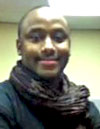 |
SEIF SEKALALA Seif Sekalala is also a Member of the HumanDHS Education Team. Seif shared with us his background on 11th November 2014: "I was born in Uganda, East Africa, and came to the United States to pursue higher education (among other reasons) after high school in 2004; I have family spread out over 3 continents, and I love interacting with people from all over the globe. Given that background, perhaps it is no accident that I ended up studying what I study. I draw the inspiration for my research from some of the experiences my family and I have had in Africa and the West, and my overarching ambition is to understand and to fight some of the root causes of global injustice and inequality. As of 2012 to 2016, the biggest project I am working on is my dissertation, in which I examine the narratives of Rwandan former refugees and genocide survivors (“FRGS”), and their expressions of coherence and resilience. I am honored and delighted to be part of the HumanDHS fellowship of scholars, activists, and humanists. May peace and human dignity prevail in our world. The goals of the researcher must be to empathize with the subject, to enter the subject’s realm of experience, and to attempt to understand the value of the person as an individual. Please see: • Global Intercultural Citizenship (GIC) in Rwandan Reconstructive Dialogue (Abstract | Powerpoint | Video), co-authored with David Balosa, paper contributed to the 2014 Workshop on Transforming Humiliation and Violent Conflict, Columbia University, New York City, December 4-5, 2014. |
 |
MOHAMED HAJI INGIRIS Mohamed Haji Ingiriis is a Somali scholar specialising in Somali Studies and pursuing a doctorate in African Studies and History at the University of Oxford. Associate Editor for the Journal of Somali Studies, he is also a book reviews editor for the Journal of the Anglo-Somali Society. Previously studying at the Katholieke Universiteit Leuven, he obtained an M.A. in History from the Departments of Anthropology and History at Goldsmiths, University of London and an M.Sc. in Organisation and Community Development from the Department of Social Sciences and Humanities at London Metropolitan University. Both his dissertations were achieved with a distinction. He has just completed two book projects on the Somali power politics and political cultures. |
DOAA RASHED |
|
FONKEM ACHANKENG |
|
| RAMESH RAMLOLL Please find Ramish Ramloll's background here. Please meet also Jaishree Beedasy, the wife of Ramesh Ramloll. |
|
| TOMOKO ISHII Tomoko Ishii is also a member of our HumanDHS Global Core Team. Tomoko Ishii, Ph.D., is the CEO of the Human Wellness Institute (HWI) which is Voluntary Non-profit Organization (VNPO). The institute is a new research and education center promoting human wellness, especially mindfulness for victims of violence. Earlier, Tomoko worked at the Department of Stress Disorders Resarch at the Tokyo Institute of Psychiatry. She is a member of the International Society for Traumatic Stress Studies, where she has presented her work in domestic violence several times at the ISTSS conferences. [read more] |
|
SUBRATA GHOSHROY |
|
| CAROL SANDER Carol Sander, MSW, PhD(c) is a lecturer and researcher at the University of Toronto in Toronto, Canada. She is currently involved in doctoral research and advanced training in trauma healing of genocide survivors. She is an NGO representative to the Economic and Social Council at the United Nations. |
|
| MNEESHA GELLMAN Mneesha Gellman is Assistant Professor of Comparative Politics at Emerson College, Boston, MA, USA. Her research interests include comparative democratization, post-conflict reconstruction, cultural rights movements, and memory politics in the Global South. Mneesha’s current research looks at how citizens are formed during democratization processes in the formal education sector and in community-run spaces in Sierra Leone, El Salvador, Mexico, and Turkey. Mneesha’s previous research examined how ethnic minority communities use memories of violence in mobilizations for cultural rights, particularly the right to mother tongue education. Previously Mneesha was a Postdoctoral Fellow at the Centre for Global Cooperation Research, Käte Hamburger Kolleg, University of Duisburg-Essen, Duisburg, Germany, and has published in journals such as Democratization, Conflict Resolution Quarterly, and Development in Practice. She holds a PhD in Political Science from Northwestern University, USA, and an MA in International Studies/Peace and Conflict Resolution from the University of Queensland, Australia. |
|
| KALEN YOUNG Kalen Young is an organizational change leader with a Bachelor of Arts in Political Science who has earned her MA in Social Justice and Human Rights from Arizona State University. Kalen has extensive research and professional experience working on interdisciplinary research projects pertaining to sexual orientation, gender identity, public policy and hyper-masculine environments. Her research interests include radical pedagogies in praxis, humiliation as it intersects with trauma, and obstetric/traumatic fistulas through a human rights lens Her research grants her the opportunity to explore the complex matrices of socio-political impulses that perpetuate systems of institutionalized discrimination and violence. Her current research focuses on obstetric and traumatic fistulas as a nexus where trauma and humiliation intersect. |
|
WELLINGTON M. LIRA |
|
 |
JULIA ALEXANDRA BROWN Julia Brown is a Canadian Master’s Student in International Humanitarian Action. She studies through the Network on Humanitarian Assistance (NOHA) program. Her studies in this inter-university program take place in the University of Warsaw, University College Dublin, and Uppsala University. Her Undergraduate Degree is a Bachelor of Honors in Humanities; with specialization in Women’s Studies and Indigenous Studies. She is an active member of Toronto Canada’s Aboriginal community as well as a volunteer at Indspire, Canada’s only national Aboriginal charity. Her thesis explores the discourse of empathy. Specifically, the two-way connection between how disasters in humanitarian action are conceptualized by non-governmental organizations in order to permeate care and compassion. |
List of Academic Advisors
| LINDA M. HARTLING Linda M. Hartling, Ph.D., is the HumanDHS Director, and also a Member of the HumanDHS Global Advisory Board, and the HumanDHS Education Team. She is furthermore the Editor of the Journal of Human Dignity and Humiliation Studies (JHDHS). Linda is the Associate Director of the Jean Baker Miller Training Institute (JBMTI) at the Stone Center, which is part of the Wellesley Centers for Women at Wellesley College in Massachusetts. Dr. Hartling is a member of the JBMTI theory-building group advancing the practice of the Relational-Cultural Theory, a model of psychological growth and development. She coordinates and contributes to training programs, publications, and special projects for the JBMTI. She holds a doctoral degree in clinical/community psychology and has published papers on resilience, substance abuse prevention, shame and humiliation, relational practice in the workplace, and Relational-Cultural Theory. Dr. Hartling is co-editor of The Complexity of Connection: Writings from the Jean Baker Miller Training Institute at the Stone Center (2004) and author of the Humiliation Inventory, a scale to assess the internal experience of derision and degradation. She is currently a member of an international team establishing the first Center for Human Dignity and Humiliation Studies. Please see • Humiliation: Assessing the Impact of Derision, Degradation, and Debasement by Linda M. Hartling, and Tracy Luchetta, first published in 1999 in The Journal of Primary Prevention, 19(4): 259-278. • An Appreciative Frame: Beginning a Dialogue on Human Dignity and Humiliation, introductory text prepared by Linda M. Hartling for "Beyond Humiliation: Encouraging Human Dignity in the Lives and Work of All People," 5th Annual Meeting of Human Dignity and Humiliation Studies in Berlin, 15th -17th September, 2005. • Humiliation and Assistance: Telling the Truth About Power, Telling a New Story, paper prepared by Linda M. Hartling for "Beyond Humiliation: Encouraging Human Dignity in the Lives and Work of All People," 5th Annual Meeting of Human Dignity and Humiliation Studies in Berlin, 15th -17th September, 2005. • Humiliation: Real Pain, A Pathway to Violence, preliminary draft of a paper presented at Round Table 2 of the 2005 Workshop on Humiliation and Violent Conflict, Columbia University, New York City, December 15-16, 2005. • Relationship Tips developed by Judith Jordan, and Linda Hartling, at the Jean Baker Miller Training Institute, 2006. • From Humiliation to Appreciation: Walking Toward Our Talk, abstract presented at the Second International Conference on Multicultural Discourses, 13-15th April 2007, Institute of Discourse and Cultural Studies, & Department of Applied Psychology, Zhejiang University, Hangzhou, China, as part of the 9th Annual Meeting of Human Dignity and Humiliation Studies. • Bykr, A. S. and B. Schneider (2002). Trust in Schools: A Core Resource for Improvement. New York, Russell Sage Foundation. Please see the notes that Linda made on this book. • From Humiliation to Appreciation: Walking Toward Our Talk, presentation at the Wellesley Centers for Women at Wellesley College, Wellesley, Massachusetts, USA, in 2007. |
|
| MOIRA R. ROGERS Moira R. Rogers, Ph.D., is also a Member of the HumanDHS Global Advisory Board and part of the core HumanDHS Research Management Team. Moira is Associate Professor of Spanish at Eastern Mennonite University and Intercultural Consultant for a variety of organizations in Germany, Spain, and the U.S. She has a Ph.D. in Science and Technology Studies from Virginia Tech, Blacksburg, VA, an MA in Biblical Studies from the Associated Mennonite Biblical Seminaries, Elkhart, IN, and a Teaching Degree in Philosophy from the Universidad de Buenos Aires, Argentina. Born in Argentina, Professor Rogers grew up in a multicultural and multilingual home in Buenos Aires and brings her personal and professional experiences as well as her Anabaptist faith commitments to bear on her teaching and research work. As faculty, she teaches Spanish, intercultural communication, and courses on Migrations/ Inmigration that integrate Global, National, and local issues. Her doctoral research focused on the elitism and mechanisms of exclusion of academic cultures in early eighteenth-century Germany, published as Newtonianism for the Ladies and Other Uneducated Souls: The Popularization of Science in Leipzig (2003). More recently, she has done training at the Summer Institute for Intercultural Communication in Portland, Oregon. She received an international award for her study entitled "Internationales Baucamp: Bausteine für ein gelingendes Zusammenleben im 21. Jahrhundert" (2005). Moira currently leads a program at the University of Cadiz, Spain, and works with its newly established "Instituto de Inmigración e Interculturalidad." Her current research project is entitled "Humiliation and Human Strength: Stories of African-Spanish Migrations," a study that tells a chapter of the story of mass migrations in the 21st century with a focus on the Spanish enclaves of Ceuta and Melilla in northern Morocco. Through this study she hopes to contribute to breaking the cycles of humiliation fueled by the displacement of many and to making our world a hospitable place for all people. |
|
MAGGIE O'NEILL |
|
| REINHARD WOLF Reinhard Wolf is a professor of international relations at the Department of Political Science at Goethe University, Frankfurt/M. His current research focuses on the relevance of respect and disrespect in international relations, notably on the expression of, sensitivity to and consequences of disrespect among states and nations. He is especially interested in applying insights and findings from both philosophy and social psychology to theoretical and empirical studies in international relations. Please see: • Respect and International Relations: State Motives, Social Mechanisms and Hypotheses, paper presented at the 49th Annual Convention of the International Studies Association, San Francisco, March 26-29, 2008. Respect and International Relations: State Motives, Social Mechanisms and Hypotheses Abstract presented at the 13th Annual Conference of Human Dignity and Humiliation Studies "World Peace through Humiliation-Free Global Human Interactions," in Honolulu, Hawaii, August 20 to 23, 2009. |
|
| PATRICIA RODRIGUEZ MOSQUERA Patricia Rodriguez Mosquera is also a Member of the HumanDHS Global Core Team and she is part of the core HumanDHS Research Management Team. Patricia is currently Assistant Professor at the School of Social Sciences and Law, Brunel University, UK. Patricia studied psychology at the Autónoma University of Madrid (Spain) and the University of Amsterdam (UvA, The Netherlands). She obtained her Ph.D. from the University of Amsterdam in 1999. Her Ph.D. involved a series of cross-cultural studies on the role of honor in emotion. She was awarded a post-doctoral research grant from the Netherlands Organisation for Scientific Research (NWO) to continue her work on honor cultures. She worked as a post-doctoral researcher and as Assistant Professor at the Department of Social Psychology, University of Amsterdam. She is currently Assistant Professor at the School of Social Sciences and Law, Brunel University, UK. Her research focuses on the interplay between culture and emotion. She does research on a variety of emotions: pride, shame, anger, envy, and happiness. She has studied emotions in a variety of cultures and geographical regions: Southern Europe, Northern Europe, North-Africa, Middle-East, the Caribbean islands, U.S.A. Her work on humiliation focuses on the role of this emotion in insult-related conflict. She is especially interested in the situational, cognitive, and behavioral correlates of humiliation. Please see: • Humiliation and Honor, note presented at Round Table 1 of the 2005 Workshop on Humiliation and Violent Conflict, Columbia University, New York City, December 15-16, 2005. • Humiliation and Racism, paper presented at The National Conference on Racism in Global Context, 9th-11th November 2007, Murdoch University, Australia. • Rodriguez Mosquera, P.M., together with Agneta H. Fischer, Antony S. R. Manstead, and Ruud Zaalberg (2007) Attack, Disapproval, or Withdrawal? The Role of Honor in Anger and Shame Responses to Being Insulted, Cognition and Emotion, in press. |
|
| EVELIN G. LINDNER Evelin Gerda Lindner is a cross-cultural social psychologist and physician and she is part of the HumanDHS Research Management Team. Evelin is the founder of HumanDHS. She holds two Ph.D.s, one in medicine and one in psychology. In 1996, she designed a research project on the concept of humiliation and its role in genocide and war. German history served as starting point. |
|
|
PAUL A. STOKES |
|
ALICIA CABEZUDO |
|
| ARIE NADLER Arie Nadler is also a Member of the HumanDHS Global Advisory Board. He was born in Munich in 1947. He is Professor of Social Psychology at the Tel-Aviv University. From 1984 to 1988 he served as the Head of the Department of Psychology and, from 1993 to 1998, as the Dean of the Faculty of Social Sciences at Tel Aviv University. He was the Head of the Academic Committee of the Tami Steinmetz Center for Peace Research at Tel Aviv University since its foundation in 1992 until 2002. He has also founded, and was the first Head, of the Institute for Diplomacy and Regional Cooperation at Tel Aviv University (1999-2002), which was established jointly by the Peres Centre for Peace and Tel Aviv University. Since 2000, Professor Arie Nadler holds the Argentina Chair for Research on Social Psychology of Conflict and Cooperation (donated by the Argentinean Friends of Tel Aviv University). He has written extensively in scholarly international journals of social psychology. His major areas of scientific interest focus on cooperation between individuals and groups, inter-group relations and social conflict, social identity and prejudice, as well as massive social traumas and their impact on individuals and collectives. Please find here some of his publications: • From Tel Aviv to Ulcinj - Can we learn from each other about reconciliation and peace-building? by Arie Nadler in Eurozine (2001-07-04). • Inter-Group Helping Relations As Power Relations: Maintaining or Challenging Social Dominance Between Groups Through Helping, in Journal of Social Issues(58, 3, March, pp. 487-502, 2002). • Arie Nadler (2004), together with Tamar Saguy, Reconciliation Between Nations: Overcoming Emotional Deterrents to Ending Conflicts Between Groups, in Langholtz, Harvey and Stout, Chris E. (Eds.), The Psychology of Diplomacy (New York, NY: Praeger, 2004). Arie comments this chapter as follows: The empirical paper which Tamar wrote is reported (in part) in the chapter. It is an analysis of the pitfalls in reciprocal assistance in "joint Israeli-Palestinian projects". It basically asked the question: Which projects survived and continued despite the tensions of the Intifada, and which folded? It does say a lot about equality in giving and receiving assistance (the hallmark of true cooperation). Unfortunately, it was published in an Israeli journal (in Hebrew). But the chapter may still be relevant. • Going beyond guilt and revenge: The effects of admitting responsibility and expressing empathy for the enemy's suffering on inter-group reconciliation, note presented at the 2004 Workshop on Humiliation and Violent Conflict, Columbia University, New York City, November 18-19, 2004. • Intergroup Helping as Status Relations: Effects of Status Stability, Identification, and Type of Help on Receptivity to High-Status Group’s Help, in Journal of Personality and Social Psychology, 91 (1), pp. 97–110, together with Samer Halabi, 2006. • Arie explains (April 14, 2007): I am attaching (1) an empirical paper ( with Liviatan) on the effects of apology on reconciliation, and (2) a chapter (with my student and co-worker Nurit Shnabel) that is forthcoming in a book which I co-edit and summarizes some ideas on the process of reconciliation between groups, and the Need Based Model of reconciliation. I think that the model is very relevant to our work on humiliation and conflict: (1) Intergroup Reconciliation: Effects of Adversary’s Expressions of Empathy, Responsibility, and Recipients’ Trust, in Personality and Social Psychology Bulletin, 32 (4, April), pp. 459-470, together with Ido Liviatan, 2006. (1) Instrumental and Socio-Emotional Paths to Intergroup Reconciliation and the Need-Based Model of Socio-Emotional Reconciliation, to appear in: A. Nadler, T. Malloy & J.D. Fisher (eds.) Social Psychology of Intergroup Reconciliation. New York, NY: Oxford University Press, together with Nurit Shnabel, 2006. • Arie explains (April 14, 2007):You already have my JPSP paper with Halabi (Intergroup Helping as Status relations). I am attaching a chapter which is less technical and much more relevant to the issue of Humiliation and Assistance and the importance of attending to this link in social-programs on the inter and intra national levels: (1) Inter-Group Helping as Status Organizing Processes: Implications for Inter-Group Misunderstandings, in press in: Demoulin, S., Leyens, J.P. & Dovidio, J.F. (Eds.): Intergroup Misunderstandings: Impact of Divergent Social Realities. Washington, DC: Psychology Press, April 2007, revised version, together with Samer Halabi, and Gal Harpaz-Gorodeisky. • Arie Nadler, together with Thomas Malloy, and Jeffrey D. Fisher (Eds.) (2008). Social Psychology of Inter-Group Reconciliation: From Violent Conflict to Peaceful Co-Existence. Oxford, New York: Oxford University Press. |
|
| PETER T. COLEMAN Peter T. Coleman is the recipient of the 2020 HumanDHS Lifetime Commitment Award. He is also a Member of the HumanDHS Global Advisory Board. Peter T. Coleman is the Director of The Morton Deutsch International Center for Cooperation and Conflict Resolution (MD-ICCCR) and Professor of Psychology and Education at Teachers College, Columbia University, New York City. He holds a Ph.D. and M.Phil. in Social / Organizational Psychology from Teachers College, Columbia University and a B.A. in Communications from the University of Iowa. He has conducted research on social entitivity processes (ingroup/outgroup formation), gender discrimination in organizations, the mediation of inter-ethnic conflict, ripeness in intractable conflict, conflict resolution & difference, and on the conditions which foster the constructive use of social power. |
|
| MICHAEL HARRIS BOND Michael Harris Bond is also a Member of the HumanDHS Global Advisory Board. He is Professor of Psychology and teaches at the Department of Psychology of the Chinese University of Hong Kong. His research interests are social perception, the social psychology of language use, impression management, values, cross- cultural social psychology, and cross-cultural interaction. Professor Bond has written numerous articles, book chapters and books on these topics, see, for example, Social Psychology Across Cultures: Analysis and Perspectives (1993, 1994, 1998, 1999, together with Peter B. Smith), or The Handbook of Chinese Psychology that Bond edited in 1996, or "Individual perceptions of organizational cultures: A Methodological Treatise on Levels of Analysis" co-authored with Geert H. Hofstede in Organization Studies (1993). |
|
| PIERRE DASEN Pierre Dasen, Professor of Anthropology of Education and Cross-Cultural Psychology at the Faculty of Psychology and Education of the University of Geneva, Switzerland. |
|
| JUAN ALVAREZ VITA Professor Juan Alvarez Vita (Peru) is Ambassador of Peru and Professor of Public International Law. He is a Member of the Scientific Council of the Summer University on Human Rights, Geneva. He was President of the National Commission for Refugees and of the Special Commission for Cuban Refugees. He has collaborated as expert in Human Rights issues with the United Nations and with the Inter-American Court Human Rights. He is a former Vice President of the Committee on Economic, Social and Cultural Rights of the United Nations. He participated in the elaboration of the United Nations Convention against torture, the United Nations Convention on the rights of the child as well as the Declaration on the right to development. He is author of "Diccionario de Peruanismos", "El Derecho al Desarrollo", (published in Spanish and Italian by the Inter.-American Institute of Human Rights and the University of Padua), "Tratados Internacionales y Ley Interna" and "El Derecho a la Salud como Derecho de la Persona Humana" (translated by the United Nations to English, French and Russian). |
|
| FINN TSCHUDI Finn Tschudi is also a Member of the HumanDHS Global Advisory Board. Finn Tschudi has spent most of his professional life - 37 years - at the Institute of Psychology, University of Oslo, Norway. He has broad interests in psychology and has been teaching and publishing in cognitive, social, personality and clinical psychology. While well known for his contageous enthusiasm when teaching he was eager for a change and took an early retirement from his position as professor of psychology from January 1999. At about that time Johan Galtung - who had known Finn for a few decades - had enlisted Finn in his TRANSCEND network, and he is co-author with Johan Galtung on "Crafting Peace: On the Psychology of the TRANSCEND Approach" in J. Galtung et.al. (Eds.), Searching for Peace. The Road to TRANSCEND. Pluto Press, 151-170. Eager to get some real knowledge about conflicts and conflict transformation Finn went to Australia to study with John McDonald and David Moore. Finn then brought his Australian friends to Norway to give workshops, and he has since been a consultant to Norwegian projects using conferencing. Conferencing is a key approach within the Restorative Justice movement, which is an alternative to the dominant Retributive Justice approach. Furthermore, conferencing provides a far greater emphasis on emotional processes than usual cognitive approaches. He has published about conferencing in Norwegian, and with Bob Neimeyer in the book chapter: R. A. Neimeyer & F. Tschudi (2003) Community and Coherence in G. D. Fireman et.al. (Eds.), Narrative and Consciousness. Oxford University Press,166-191. A further article on "suspected sexual abuse" with Sissel Reichelt: When therapy is stuck: What about conferencing? has been published in 2004 in the Journal of Systemic Therapy, 23, 38-52. Finn has also written a programmatic paper on how restorative principles may be extended to handling large, controversial projects, NEWWAYS.DOC Finn greatly enjoys participating in a voluntary association dedicated to preserving a unique bird wildlife area and a surrounding landscape with a rich cultural heritage, situated just a few minutes by car from the centre of Oslo. A farm in this area is a center for a foundation working to educate young leaders from Palestine, Jordan and Israel to peacefully cooperate, a project Finn is eagerly supporting. "mep" denotes "Middle East Project." Finn talked about all this (also touching 9/11) in a keynote address: Conflict Transformation: The Road from Alienation to Solidarity at The World Peace Foundation, Novembre 19, 2002 at LaCrosse, WI. Otherwise Finn has for several years been dedicated to perfecting a set of computer programs - MULTIGRID - useful for at a group level mapping cultural climate and homo/heterogeneity, at an individual level helping client and therapist together mapping viable paths to a better life, and/or evaluating the impact of therapy. Much to his surprise the system has also been found useful in quite different fields as e.g. a current project which maps how Swedish auditors – in the wake of Enron etc. – think about their current and possible future tasks. An article about this is under review in European Journal of Accounting. How auditors work raise the problem of the relative importance of rules vs. more overriding principles. Congruent with his interest in emotions Finn has written a paper arguing for the importance of intuitive, holistic thinking: "Rules, Complexity and Emotions" and a Swedish version will appear in a Swedish book devoted to critical issues about the way auditors go about their tasks. Interest in grid methodology has been spurred by a long standing interest in mapping structure for a single individual, and a concomitant distrust in usual methodology where individual structures often are lost when comparing means. An overriding interest is whether and to what extent multivariate methods can reveal latent structures by "purifying" manifest data of "noise." This was in fact the topic of his doctoral dissertation: The Latent, the Manifest and the Reconstructed in Multivariate Data Reduction Models. A Study of Multidimensional Scaling and Similarities Data. University of Oslo, 1972. Currently Finn's interest in similarity has been rekindled by considering how much greater our concern is for those close to us than for those seen to be very different. When psychological distance is concomitant with hostility, derogation and cruelty this raises the problem of how this can be reversed – what are the possibilities for humanizing relations? What can conferencing contribute, and what other approaches as for instance the Mep project mentioned above are viable? Finn is a member of the editorial board of Journal of Constructivist Psychology, and the advisory board of Proactive-resolutions.com which is headed by John McDonald. Please see: • Accepting Vulnerability – Necessary for a Good Society?, revised draft of paper for Telemark Symposium August 18-21, 2005. • Frihet som motmakt: Venstresiden må ta frihetsbegrepet tilbake!, a short version of which was published in Klassekampen, 20th April 2006. Finn appreciates comments at finn.tschudi@psykologi.uio.no! • Reflections on World Parliament Experiment, WPE, at isfit 2007. |
|
HOWARD ZEHR |
|
| MICHAEL ROPER Michael Roper, Sociology Department, University of Essex, UK |
|
| DAVID R. BRUBAKER David R. Brubaker is an Assistant Professor of Conflict Studies at the Conflict Transformation Program, Eastern Mennonite University, Harrisonburg, Virginia, USA. He earned a BS in Business Administration from Messiah College and an MBA in Global Economic Development from Eastern University. He is currently a PhD candidate at the University of Arizona specializing in religious and organizational conflicts. In 1997 he and four partners founded Cooperative by Design – An Arizona Peacebuilding Consortium which provides a range of consulting and peacebuilding services to not-for-profit organizations, educational institutions, governmental organizations and corporations. Prior to this he served in a number of community development, mediation and human services organizations. These roles included serving as the associate director of Mennonite Conciliation Service for two years and serving as assistant director of Mennonite Central Committee’s Recife, Brazil program where he became fluent in Portuguese. Dave is the author of numerous articles on conflict transformation. |
|
| JAYNE SEMINARE DOCHERTY Jayne Seminare Docherty, Ph.D., Associate Professor of Conflict Studies Conflict Transformation Program, Eastern Mennonite University, Virginia, USA. |
|
VERNON JANTZI |
|
| CHANTAL LOGAN Chantal Logan, Ph.D., is an Associate Professor at the Eastern Mennonite University, Virginia, USA. Dr. Logan was born in Paris, France. She earned a B.A. and an M.A. with a focus in French linguistics from the University of Paris-Nanterre and a PhD in comparative literature from the University of Limoges, France. Her other fields of study include psychotherapy, Islamic studies, and conflict resolution. Dr. Logan comes to EMU with many years experience teaching French and Spanish. For most of her married life, she and her husband have served the church in different capacities in Argentina, Colombia, DJibouti, France, and the US. Most recently, they served three years as co-directors for the Somali program in Kenya, sponsored by Eastern Mennonite Missions and Mennonite Central Committee. She has managed many programs including Development, peacebuilding and Conflict Resolution, Humanitarian Assistance. Dr. Logan values "academic excellence combined with intellectual honesty." |
|
| JOSEPH AGHOLOR Joseph Agholor, Ph.D., London School of Management and Technology, London, UK. |
|
| TONY JENKINS Tony Jenkins is also a Member of the HumanDHS Education Team. He is the Coordinator as well as Director of Administration and Research at the Peace Education Center of Teachers College, Columbia University and the General Coordinator of the International Institutes on Peace Education (IIPE), planning and coordinating institutes in the Manila, Seoul, and Istanbul and in 2005, Rhodes, Greece. His current work focuses on pedagogical research and educational design with emphasis on disarmament, gender and human rights education. Tony regularly conducts courses and workshops in peace education at Teachers College New York and Tokyo campuses, and at the United Nations-mandated University for Peace in Costa Rica. |
|
MICHALINOS ZEMBYLAS |
|
 |
ELENI CHRISTODOULOU Eleni Christodoulou is a final-year Doctoral Researcher at the Department of Political Science and International Studies, University of Birmingham, UK. Throughout her doctoral studies she has been a Universitas 21 PhD Fellow at the University of New South Wales, Australia, a PhD Visiting Researcher at the University of Tübingen, Germany, and has completed an ESRC-funded placement at the Scrutiny Unit of the House of Commons, UK. She holds a BA in Modern History (First Class), an MA in Political Science (Research Methods), and an MA in Diplomacy (Distinction) from the University of Birmingham. Her thesis, titled 'The Politics of Peace Education in Cyprus' investigates the discursive power struggle over education in the context of the Cyprus conflict. Her research interests include pedagogical peacebuilding; Gramsci and peace education; gender and peacebuilding; peace journalism; history and collective memory; the role of emotions in re-constituting national identity during socio-economic crises. As a member of the HumanDHS Research Team she is interested in exploring the nexus between peace education and human dignity, as well as the collective memory of humiliation passed through generations. |
ABELARDO BRENES |
|
| RUBÉN ALBERTO CHABABO Rubén A. Chababo is a Literature Professor, who graduated from the National University of Rosario (Universidad Nacional de Rosario) in 1987. He is an Assistant Professor of Nineteenth Century Argentine Literature at the Humanities and Arts School of Rosario, and a Literature Professor at Bialik Institute in Rosario. Since December 2002, he has been the Director of the Museo de la Memoria (Museum of Memory) in the city of Rosario, pertaining to a branch of the Secretary of Culture of the Municipality of Rosario, which is the first governmental institution devoted to reconstructing and safekeeping the memory of the recent past linked to the last military dictatorship, in power from 1976 to 1983. In 1989 the United Nations Program granted him a fellowship in order to complete post-graduate studies in the Central University of Las Villas (Universidad Central de Las Villas) in Cuba, where he wrote his thesis on the Cuban artistic vanguard of the 1920s, under the supervision of Doctor Aimé Bolaños. In 1992, as a fellowship holder of the Latin American Institute of Cooperation (Instituto de Cooperación Iberoamericana) in Madrid, he finished his second post-graduate thesis focused on the subject of exile in Spanish-Hebraic poetry, under the supervision of Doctor Manuel Alvar. That same year, he was granted a fellowship by the Institute of Scientific and Technical Research (Instituto de Investigaciones Científicas y Técnicas - C.S.I.C) to complete his pre-doctoral course in the city of Malaga on the Indian Chronicles. For his research on Orígenes magazine, a Cuban cultural and literary publication of the 1950s, he was granted a fellowship from the Ministry of Culture of the Province of Santa Fe in 1994. He has also been awarded grants for research by the Deutscher Akademischer Austaauschdienst in 1996; the National Fund for the Arts (Fondo Nacional de las Artes) in the field of "creation" in 1998; and again the Ministry of Culture of the Province of Santa Fe in 1998 for his investigation on the subject of migrations and banishments. He has worked on archives and bibliographical compilation at the National Library of Havana, Casa de las Américas, and the National Library of Madrid, as well as the Iberoamerikanische Institut of Berlin, where he investigated the controversies between the intellectuals and the political power in the years following the victory of the Cuban revolution. As a guest professor, he has been invited to lecture, dictate courses and coordinate graduate seminars on Latin American Literature at Potsdam University in 1996 and Pescara University in 1998, among others. His numerous journalistic pieces and essays are regularly published in specialized publications, newspapers and magazines with local, national and international circulation, oriented toward cultural, political and social issues. Since 1990 he has been coordinating reading and discussion workshops on the subject of contemporary Latin American literature. His published book entitled Moradas (Dwellings) deals with the search for our individual place in the world, exile and banishment in contemporary society. The text was based on the oral testimonies of immigrants residing in Argentina and of political exiles. In the last few years, he has focused his attention on the investigation of testimonial literature dealing with situations and experiences in concentration camps. He is researching the Diaries of the Italian Giovanni Guareschi, a survivor of Buchenwald concentration camp, and the memoirs of Margarette Buber Neumann, a survivor of Ravensbruk camp. His essay on the personality of Jack Fuchs, a survivor of Auschwitz, received first prize from the Memory of the Holocaust Foundation in 1998. He proposed and organized the Journeys entitled Faced with the limit: reflections on the subject of the Holocaust and the dictatorial experiences in Latin America, in cooperation with the authorities of INADI (National Institute Against Discrimination) in the National University of Rosario, which took place in October-November 2001. He has dictated courses on the complexity of conveying concentration camp experiences in educational institutions, and participated in research projects on the problematic of genocide. At present, he is working on the compilation of material for his work on a broader book concerning the Chacabuco concentration camp, located in the Puna de Atacama in Chile. |
|
| ISLAM ELSANOV Islam Elsanov is a Writer, Filmmaker, and Chechen/Russian-speaking North-Caucasus Specialist based in Stavanger, Norway. |
|
RAÏS NEZA BONEZA |
|
G. GLADSTON XAVIER |
|
| RICHARD BURNS Richard Burns has enjoyed a truly international lifestyle having been born in the UK and then living in every 'civilised' country from Canada to South Africa. After several years of working as a musician and music teacher, he left Australia in 2000 in order to work at SIS. In 2002 he made "mistake of his life" and moved to Manchester where he completed a MSc in Applied Psychology, involving a dissertation looking into The Sources and Symptoms of Stress Reported by a Sample of International Teachers. Richard Burns has experience teaching at Special Needs School, High School, 6th Form College and University level. At Skagerak International School in Norway he is the University/Careers Advisor, School Counsellor, Teacher of English, History and TOK. Richard Burns is currently doing a Ph.D. focusing on the effects of school organisational climate on teacher well-being. |
|
| IVAN LEUDER Ivan Leuder, Ph.D., Manchester University, UK. |
|
| MARTIN FARRELL Dr. Martin Farrell received his Ph.D. from the University of Strathclyde in 1993. He then held a Royal Society/SERC postdoctoral fellowship at the University of Aix-Marseille in France from 1993-1995. From 1995-1997 he was a postdoctoral research fellow on a project funded by the Stroke Association at the Medical Research Council Applied Psychology Unit in Cambridge. He has been a lecturer at the Department of Psychology, University of Manchester, since 1997. |
|
| MONS BENDIXEN Mons Bendixen, Associate Professor, Department of Psychology, Norwegian University of Science and Technology (NTNU) in Trondheim. |
|
| FRANÇOIS AUDIGIER François Audigier, Professor, Faculty of Educational Sciences and Psychology at the University of Geneva, Switzerland. |
|
| WILLIAMS R. O’NEILL Williams R. O’Neill, Ph.D., Jesuit School of Theology at Berkeley, USA. |
|
| VAN DER LINDEN Van der Linden, Professor, Department of Cognitive Psychopathology, University of Geneva, Switzerland. |
|
| ABDELJALIL AKKARI Abdeljalil Akkari is a Director of Research at the Higher Pedagogical Institute HEP-BEJUNE in Bienne, Switzerland. His major publications include studies on educational planning, multicultural education, teacher training and educational inequalities. Her main research interests focuses on Europe, Africa and Latin America. He is also consultant for the International Bureau of Education (UNESCO). Please see here some of his publications: Akkari, A. (2004). Paulo Freire: De l'oppression de la pédagogie à la pédagogie des opprimés. Education Permanente, 2, 60-62. Akkari, A. (2003). The Euro-Arab dialogue: An educational Bridge. What is a education's role. Prospects, vol XXXIII (4), 397-403. Akkari, A. (2002). Towards a Critical Perspective in Citizenship Education. World Studies in Education. Akkari, A. (2002). Review of "Non-Western Educational Traditions: Alternative Approaches to Educational Thought and Practice". Contemporary Psychology, 47(2). Ferrer, F. & Akkari, A. (2002). L'éducation interculturelle en Espagne et en Suisse: une analyse comparative. Migrations Themes, 17 (3), 239-264. Akkari, A. (2002). Langues, pouvoir et éducation au Maghreb. DiversCité Langues. Akkari, A. (2001). Pedagogy of the Oppressed and the Challenge of Multicultural Education. Interchange. A Quarterly Review of Education, 32(3), 271-293. |
|
| CHARLES MAGNIN Charles Magnin, Professor of History of Education, at Geneva University, Department of Psychology and Educational Sciences. |
|
| SANDRA HELENA CACHENOT Sandra Helena Cachenot, Psychologist. |
|
| ALTAF ULLAH KHAN Altaf Ullah Khan is an Assistant Professor at the Department of Journalism & Mass Communication at the University of Peshawar, in Pakistan. Dr. Khan has been the co-organiser of a series of Journalist Training Workshops in 2005. The Workshops were funded by UNESCO. They were aimed at capacity building of the District Correspondents in the periphery, the rural areas of NWFP. Dr. Khan is the author of the initial project and is also responsible for the final report to UNESCO, which has been accepted. Dr. Khan has furthermore written the manual for a training workshop in May 2005 and the reports, the first one in December 2005, and the final one in March 2006. Dr. Khan has earned his PhD on a similar topic: Profile of Journalists in Peshawar, a social psychological profile of journalists. He is also the editor of the book News Media and Journalism in Pakistan and Germany, the first of the series Communication, Media, and Social Change. He is the co-editor of the series together with his academic advisor (Doktorvater), Prof. Dr. Arnulf Kutsch, Chair of Historical and Systematic Communication Science, Institute for KMW, University of Leipzig. |
|
| FLOYD WEBSTER RUDMIN Floyd Webster Rudmin is Co-Director and Co-Coordinator of the HumanDHS Stop Hazing and Bullying Project and the HumanDHS World Gender Relations for Equal Dignity Project, as well as the HumanDHS Apology Project. He is also a member of the HumanDHS Global Core Team, and the HumanDHS Advisory Board. Floyd Webster Rudmin, Ph.D., is a Professor of Social and Community Psychology at the University of Tromsø in Norway. He earned his B.A. in Philosophy in Bowdoin College, his M.A. in Audiology in SUNY, Buffalo, his M.A. in Psychology at Queen's University, Canada, and his Ph.D. in Psychology from Queen's University, Canada. His research interests include cognitive history (psychology of historical beliefs), psychology of ownership, cross-cultural psychology, statistical methods, peace research, and history of psychology. His paper Debate in Science: The Case of Acculturation won the 2004-2005 Klineberg Intercultural and International Relations Award given by SPSSI (Div. 9 of the APA). Please see here the full text version. Please see also: • Seventeen Early Peace Psychologists, in Journal of Humanistic Psychology, 31 (2, Spring), 1991, pp. 12-43. Altaf Ullah Khan commented (23rd July 2006, in a personal message): "This reminds me of George Herbert Mead's concept of Universals. He was also in favour of developing a universal human society where interactive/rational dialogue prevails. I had never studied psychology as a discipline, but in my journey for self-discovery I have read Freud and Jung and have also gone through mythology and Sufism. I remember one Sufi saying at the very onset of a book: Sufism is to avoid preconceptions." • co-authored with Kristina Ostvik, Bullying and Hazing Among Norwegian Army Soldiers: Two Studies of Prevalence, Context, and Cognition, in Military Psychology, 2001, 13 (1), 17-39. • G. B. Grundy's 1917 Proposal for Political Psychology: "A Science Which Has Yet to Be Created", in ISPP News, 12 (2), 2005, pp. 6-7. • Six Research Designs on Humiliation, abstract presented at Round Table 2 of the 2005 Workshop on Humiliation and Violent Conflict, Columbia University, New York City, December 15-16, 2005. • Charles Robert Richet: Pioneer of Peace Psychology, in Peace Psychology Newsletter, in press. • Daniel Droba Day (1898-1998): Attitudes Towards War As a Cause of War, i n Peace Psychology, in press. • How History Allows Insight into the Malady of American Militarism, abridged version published by CounterPunch, vol.13. no.1, January 1-15, pp.1, 4-6, posted Feb. 17, 2006 at http://www.counterpunch.org/rudmin02172006.html as "Plan Crimson: War on Canada: Secret War Plans and the Malady of American Militarism." • Preventing Inadvertent Humiliation, abstract presented at the 2006 Workshop on Humiliation and Violent Conflict, Columbia University, New York City, December 14-15, 2006. • Franziska Baumgarten (1883 - 1970): Early Female, Jewish, Peace Psychologist, in Peace Psychology, in press. • The Apologies Project: Small Wins Ways to Reduce Militarizing Memories, abstracts presented at the 2010 Workshop on Transforming Humiliation and Violent Conflict, Columbia University, New York City, December 9-10, 2010. |
|
| ANTONY ADOLF Antony Adolf, author of Peace: A World History, was born in Montreal of Egyptian and Greek parents and currently lives in Chicago where he teaches. He received his B.A. from the University of Illinois, M.A. from the University of British Columbia, Vancouver, and a post-graduate certificate from Cornell University’s School of Criticism and Theory. Visit and subsribe to his blog, "One World, Many Peaces." |
|
WAEL MOHAMED |
|
| JOÁM EVANS PIM Joám is part of the leadership team of the Center for Global Nonkilling and has as primary responsibility identifying, leading and/or overseeing research initiatives, including symposia, collection of critical data related to nonkilling, research committees and related activities. Joám followed graduate and undergraduate studies in Journalism, Anthropology and Politics. He was Professor of Media Studies at the University of Santiago de Compostela and Director of the Arab and Islamic Studies Program at Menéndez Pelayo International University. He is also Founding President of the Galizan Institute for International Security and Peace Studies and Board member of the Brazilian Institute for Nonkilling. Please see: • Toward a Nonkilling Paradigm, Honolulu, HI: Center for Global Nonkilling, June 2009. |
|
| TONY WEBB Tony Webb holds a PhD in Humanities/Trans Disciplinary Research from the University of Western Sydney based on a study exploring the social psychology of shame as the root of a wide range of personal and social crises. The study evolved from his work as a social activist that began in the 1970s working with homeless and unemployed people in the UK and that progressed through three decades of building local national and international campaigns and alliances between diverse groups on ecological, peace, public health, and industry policy issues. It sought to find answers to deeper questions of what motivates (and what inhibits) social engagement in these issues and related social issues. The study explored current theories and models for social activism and frameworks for understanding and working with emotions as drivers for personal and social patterns of thought and behavior. It then explored the way that people experience these emotions, particularly the emotion of shame, and how they make sense of this experience. This involved work with small groups of people including: men’s and women’s groups, social workers, ex-prisoners, domestic violence and drug addiction workers, counselors and therapists and people who felt that shame was an issue that needed exploring in the their lives. It developed simple experiential exercises that peeled off the layers of thoughts, feelings and behaviors that so often mask the core feeling of shame to show how it could and should function in an evolutionary sense to aid personal and social survival – and from the base of this experience of shame as normal, functional and health promoting, re-evaluate how so often it becomes seen as ‘toxic’ unhealthy, painful and as such overlaid with other feelings that mask its positive functions. It then outlined how this perspective on shame could be used to tackle a wide range of social issues (broadly covering aggression/violence; depression/suicide; alienation/isolation/apathy; and a wide range of addictions) and be applied in contexts such as the criminal justice system (e.g. restorative justice); work with domestic violence offenders and the broader areas of stopping violence between people, nations and cultures; in behavior change programs ranging from drug and alcohol addictions to unstitching patterns of thought and behavior at personal and social/cultural levels. |
|
PAUL A. STOKES |
Refugees and Humiliation Project (alphabetical)
VICTOR BOUDJOU ADANGBA |
|
ZAHID SHAHAB AHMED |
|
| JORGELINA GABRIELA ALMEIDA Jorgelina Gabriela Almeida (Argentina) is specialising in Museum Conservation. The title of her project is Humiliation Policies Applied to Persecuted Individuals, Detainees and Refugees During the Period 1975/1983 in Rosario, Argentina. |
|
JOHANNA TURNER BAKER |
|
FLORINA IMMACULATE MARY BENOIT |
|
| TUVA OTTERLEI BLIKOM Tuva Otterlei Blikom (Norway) has a Bachelor of Arts in Media and Communications from Norwegian University of Technology and Science (NTNU) in Trondheim, Norway. She spent two semesters of her BA at the University in Stockholm, Sweden, studying gender in fiction films and gender science. In 2008, she finished her MA in Media and Communications at the University of Oslo (UiO), Norway. Her main areas of interest are popular culture, how it is expressed and how this unravels structures and tendencies in society and modern times. The title of her project was Being a Man is a Full-Time Job: A study on Masculinities in “Varg Veum – Bitter Flowers”, “Gangster” and “After the Wedding.” This thesis was written in cooperation with the Norwegian Ministry of Children and Equality, and it investigated the following questions: How are three Scandinavian men portrayed in the fiction film according to the idea of hegemonic masculinity? Do the movies maintain classical myths of gender through these portraits? Tuva was an intern at Marked Access Providers Limited in Dhaka, Bangladesh, during the summer of 2007, and is currently working as a Project Assistant for the more extensive sorting of waste at source in Oslo, Agency for Waste Management, the City of Oslo, Norway. She also volunteers as a coordinator for a Save the Children home work group for youth. |
|
MARI OTTERLEI BLIKOM |
|
|
|
RAÏS NEZA BONEZA |
|
| SADAF RASSOUL CAMERON Sadaf Rassoul Cameron (Afghanistan) is a Peace Education Master students at the United Nations-mandated University for Peace (UPEACE), Costa Rica. The title of her project is Afghan Refugees in the United States: Before and After September 11th. |
|
ALEX DAWSON |
|
|
|
| ANDREA ENDERS Andrea Enders (Germany) is a journalist and fluent in English, Spanish, Italian, French. The title of her project is Humiliation and Human Strength: Stories of African-Spanish Migrations. |
|
VICTORIA C. FONTAN |
|
| GAKUBA THÉOGÈNE-OCTAVE Gakuba Théogène-Octave, Ph.D. (Rwanda, Switzerland) is an Educational Psychologist, Ecologist, Postdoctorate and Lecturer at the Institute of Psychology, University of Lausanne, Switzerland. The title of his project is Frustration, Humiliation and Psycho-Social Suffering of Rwandan Refugees in Africa and Europe. |
|
JEAN-DAMASCÈNE GASANABO |
|
MANAS M. GHANEM |
|
JACQUELINE HAYES |
|
| FEDERICO LAGGI Federico Laggi, MA in Development Studies, is fluent in English, French, Italian, Spanish, was the Camp Manager of the UNHCR D'Jabal Refugee Camp for the Italian NGO INTERSOS (2004). He is currently Italy-Morocco Remittances Corridor Project Analyst. The title of his project is Humiliation and Human Strength: Stories of African-Spanish Migrations. |
|
ALYI PATRICK OPIRO LALUR |
|
| ANA LJUBINKOVIC Ana Ljubinkovic is also a Member of the HumanDHS Global Core Team. She holds a Masters degree in the Theory and Practice of Human Rights and is currently doing her PhD in the Sociology Department at the University of Essex, UK. The research is entitled 'Collateral Effects or the New Wretched of the World: Invisible Victims of Human Rights Crusades'. Ana is currently working as a Graduate Teaching Assistant in the Sociology Department, University of Essex and as a temporary research officer for CARE International in Kenya. Main spheres of interest include sociology of human rights, military humanitarian intervention, ethnographic research, humiliation and refugees. Please see Milk and Urine: Intentional Humiliation as a part of Humanitarian Assistance, note presented at "Beyond Humiliation: Encouraging Human Dignity in the Lives and Work of All People," 5th Annual Meeting of Human Dignity and Humiliation Studies in Berlin, 15th -17th September, 2005. Please see also From Violent to Subtle Humiliation: Case of Somali Victims of UNOSOM Living in the Refugee Camps in Kenya, note presented at Round Table 1 of the 2005 Workshop on Humiliation and Violent Conflict, Columbia University, New York City, December 15-16, 2005. See furthermore Is Hope the Last to Die? Research Study On The Situational Analysis In The Dadaab Refugee Camps, 2005, and Report on Field Research Conducted in Dadaab Refugee Camps (16.05.05 - 01.06.05), 2005. |
|
| MIRIAM MARTON Miriam H. Marton is also a Member of the HumanDHS Global Core Team. Miriam Marton, attorney and social worker, is the William R. Davis Clinical Teaching Fellow at the Asylum and Human Rights Clinic, University of Connecticut School of Law. Professor Marton teaches and supervises law students representing refugees seeking asylum and other legal relief in the United States. Professor Marton also conducts research on the particular issues facing female refugees fleeing gender-based violence, both in the countries-of-origins and in the United States' legal system. Professor Marton's research interests also include training lawyers to work with survivors of gender-based violence. Please see: • Relevance of Sexual Violence Against Female Noncombatant Victims of Destructive Conflict in the Study of Humiliation, paper presented at the 2004 Workshop on Humiliation and Violent Conflict, Columbia University, New York City, November 18-19, 2004. • Terrorism and Humiliation, note presented at Round Table 1 of "Beyond Humiliation: Encouraging Human Dignity in the Lives and Work of All People," 5th Annual Meeting of Human Dignity and Humiliation Studies in Berlin, 15th -17th September, 2005. • Humiliation in the Home: Survivors of Childhood Rape in the United States, note presented at Round Table 3 of "Beyond Humiliation: Encouraging Human Dignity in the Lives and Work of All People," 5th Annual Meeting of Human Dignity and Humiliation Studies in Berlin, 15th -17th September, 2005. • Humiliation and Asylum Seekers, abstract presented at the 2011 Workshop on Transforming Humiliation and Violent Conflict, Columbia University, New York City, December 8-9, 2011. |
|
| CEFERINO ROQUE MOREIRA Ceferino Roque Moreira focused on Anthropology, History and Museum Conservation. The title of her project is Humiliation Policies Applied to Persecuted Individuals, Detainees and Refugees During the Period 1975/1983 in Rosario, Argentina. |
|
| ESPERANZA MORENO Esperanza Moreno, BA, Justice Peace and Conflict Studies, is fluent in Spanish, and has experience in working with displaced women in Colombia and Venezuela. The title of her project is Humiliation and Human Strength: Stories of African-Spanish Migrations. |
|
PETER MOSELY |
|
|
|
JEAN BERCHMANS NDAYIZIGIYE |
|
ALPHONSE NSHIMIYIMANA |
|
|
|
ONEN CHRISTINE HARRIET |
|
|
|
| VERONICA PACINI Veronica Pacini (Italy/Costa Rica), United Nations-mandated University for Peace, doing her Master's Degree in the M.A. Programme in Peace Education. The title of her project is Humiliation and Refugees: The Legacy of Violence and Inaction in the Great Lake Region - The Uganda-Rwanda Scenario. |
|
| TOBIAS PECHMANN Tobias Pechmann is a Student in International Politics, University of Marburg, fluent in German and English. The title of his project is Humiliation and Human Strength: Stories of African-Spanish Migrations. |
|
| MOIRA ROGERS Moira R. Rogers, Ph.D., is also a Member of the HumanDHS Global Advisory Board and part of the core HumanDHS Research Management Team. She is Associate Professor of Spanish at Eastern Mennonite University and Intercultural Consultant for a variety of organizations in Germany, Spain, and the U.S. She has a Ph.D. in Science and Technology Studies from Virginia Tech, Blacksburg, VA, an MA in Biblical Studies from the Associated Mennonite Biblical Seminaries, Elkhart, IN, and a Teaching Degree in Philosophy from the Universidad de Buenos Aires, Argentina. The title of her project is Humiliation and Human Strength: Stories of African-Spanish Migrations. |
|
| RWAMATWARA EGIDE Rwamatwara Egide is a Sociologist and Anthropologist and Doctoral Student in Sociology, University of Zimbabwe, Harare, Africa. The title of his project is Frustration, Humiliation and Psycho-Social Suffering of Rwandan Refugees in Africa and Europe. |
|
| MARÍA LAURA SALAFIA María Laura Salafia, Political Science. The title of her project is Humiliation Policies Applied to Persecuted Individuals, Detainees and Refugees During the Period 1975/1983 in Rosario, Argentina. |
|
| LAURA SCHILDT Laura Schildt, MA, Center for Justice and Peacebuilding, Eastern Mennonite University, EMU, Virginia, USA, is fluent in Spanish and English, and has experience in community development, Mexico. The title of her project is Humiliation and Human Strength: Stories of African-Spanish Migrations. |
|
| NANCY GOOD SIDER Nancy Good Sider, Ph.D., Project Consultant, Graduate Faculty, Conflict Transformation, Eastern Mennonite University, EMU, Virginia, USA. The title of her project is Humiliation and Human Strength: Stories of African-Spanish Migrations. |
|
| ESPEN SIVERTSEN Espen Sivertsen (Denmark) is currently studying project management and new business design as a "Chaos Pilot" in Århus, Denmark. He has graduated from Manchester University with an Upper Second in Psychology and has worked as a research assistant for Dr. Sirois in Manchester. The title of his project is An Existential Discourse Analysis of Humiliation as Reported by Iraqi Refugees in the UK and Denmark. Although his academic experiences lie more within the field of visual navigation, sensory integration, and group processes, he has a wide variety of interests, including refugees, social interaction, self-organising systems, open source communities (particularly Wiki Wiki's), the theory-action gap, the effects of technology on everyday life, and non-verbal communication. Espen was the youngest residential tutor in the history of Manchester University during 2002-2004, looking after the well-being of 48 first year students. He was also elected faculty representative to the policy, planning and resource committee in 2002, representing some 3500 students. He also likes to travel, and has among other things: been a Buddhist monk in Cambodia; spent part of his 2003 summer biking solo from Tallinn in Estonia to St Petersburg in Russia; and - after winning the "NORWAY 2032" prize for a vision of sustainable development awarded by the (then) Norwegian Minister of Environment, Minister Børge Brende - spent a summer in South Africa attending the UN World Summit on Sustainable Development in Johannesburg. Here Espen helped The Norwegian Forum for Environment and Development as an assistant coordinator. At the moment, Espen is a member of the winter bathing club in Århus, and practices Taji Chuan and Kung Fu. |
|
| TSEMPZANG SIMPLICE MIAFO Tsempzang Simplice Miafo (Cameroon/Switzerland) is currently finishing the equivalence of the Licence of Psychology at the University of Geneva, Switzerland. The title of his project is Refugees' Psychological Functioning in Cameroon. The Case of Chadian or Central African Adults of Yaoundé. |
|
TZVETELINA TZONEVA |
|
|
|
| DELIA NATALIA URQUIZA Delia Natalia Urquiza focuses on Museum Conservation and Social Work. The title of her project is Humiliation Policies Applied to Persecuted Individuals, Detainees and Refugees During the Period 1975/1983 in Rosario, Argentina. |
|
| MARCELA VALDATA Marcela Valdata (Argentina) is currently working on her Ph.D. at the Museo de la Memoria [Museum of Memory] in Rosario, Argentina. The title of her project is Humiliation Policies Applied to Persecuted Individuals, Detainees and Refugees During the Period 1975/1983 in Rosario, Argentina. Please see Humiliation Policies Applied to Individuals, Detainees and Refugees During the Period 1975/1983 in Rosario, Argentina: Brief Historical and Political Development of the 20th Century, paper presented at the 2005 Workshop on Humiliation and Violent Conflict, Columbia University, New York City, December 15-16, 2005. |
|
| JUAN MANUEL WALMAGGIA Juan Manuel Walmaggia, Anthropology. The title of his project is Humiliation Policies Applied to Persecuted Individuals, Detainees and Refugees During the Period 1975/1983 in Rosario, Argentina. |
|
G. GLADSTON XAVIER |
Terrorism and Humiliation Project (alphabetical)
| NOOR AKBAR Noor Akbar is also a Member of the HumanDHS Global Coordinating Team, of the HumanDHS Global Core Team, and of the HumanDHS Education Team. Noor Akbar is working as Programme Manager – Community Engagement & Involvement, with the National Institute for Health & Care Research (NIHR) in the UK. Prior to joining NIHR Noor worked as Programme Coordinator with the Commonwealth Local Government Forum. Before that, he worked as Research Associate in the project Tolerance in Muslim Politics: Political Theory Beyond the ‘West’ at King’s College London. In this project Noor’s work centered on the life histories of the tribal Pashtuns, who had been displaced from their homes in the tribal areas along the Pak-Afghan border, due to military operations. Noor also worked with the Commonwealth Local Government Forum in the Project Strengthening the Associations of Local Governments and their Members for Enhanced Governance and Effective Development outcomes in Pakistan. In addition to that, he worked with Oxfam GB in the “We Can End Honor Killing and Violence Against Women” campaign, which was a 5-year Campaign in Pakistan, Afghanistan, India, Bangladesh, Sri Lanka and Nepal. Noor has been working in local and international non-profit organizations for more than fifteen years in various capacities and across a range of thematic areas, such as conflict resolution and human rights. He holds a Master's degree in Human Rights from Roehampton University, UK, Gothenburg University, Sweden, and Tromso University, Norway, under the European Union’s Erasmus Mundus Scholarship programme. Please see here: • Honor Killing in Pakistan: The Case of 5 Women Buried Alive, Gothenburg, Sweden: University of Gothenburg Sweden, Human Dignity and Humiliation Studies, 2010 • How should we define genocide?, London: University of Roehampton, Human Dignity and Humiliation Studies, 2010 • Women Rights in FATA Pakistan: A Critical Review of NGOs' Communication Strategies for Projects’ Implementation SOA-3902. A dissertation submitted in partial fulfillment for the degree: Master in Human Rights Practice Department of Social Anthropology, University of Tromsø School of Global Studies, University of Gothenburg School of Business and Social Sciences, Roehampton University 28th May 2010 Please see here: • Honor Killing in Pakistan: The Case of 5 Women Buried Alive, Gothenburg, Sweden: University of Gothenburg Sweden, Human Dignity and Humiliation Studies, 2010 • How should we define genocide?, London: University of Roehampton, Human Dignity and Humiliation Studies, 2010 • Women Rights in FATA Pakistan: A Critical Review of NGOs' Communication Strategies for Projects’ Implementation SOA-3902. A dissertation submitted in partial fulfillment for the degree: Master in Human Rights Practice Department of Social Anthropology, University of Tromsø School of Global Studies, University of Gothenburg School of Business and Social Sciences, Roehampton University 28th May 2010 |
|
| JESSICA LOS BAÑOS Jessica Los Baños (Philippines) is an Attorney and holds a Bachelor of Laws (LLB) from the University of the Philippines and a Masters of Business (MBA) from the Monash University, Australia. The title of her project is The Effects of Humiliation on the Economic, Socio-cultural Rights and Access to Justice of Muslim Women in Mindanao. Jessica Los Baños is Assistant Professor of Human Resource Management and General Management at the University of the Philippines. She is also a business and trade lawyer and advises clients on corporate, competition and property laws. She is a co-founder of Business & Trade Legal Information Services, Inc., a legal resource center on Philippine business and trade and has co-authored two chapters of books on the Nonprofit Law in the Philippines. |
|
| IMELDA DEINLA Imelda Deinla (Philippines) is an Attorney and holds a Bachelor of Laws (LLB) from the University of the Philippines and a Masters of Law (LLM) in International Law from the University of New South Wales, Australia. The title of her project is The Effects of Humiliation on the Economic, Socio-cultural Rights and Access to Justice of Muslim Women in Mindanao. Imelda advises clients on corporation and property laws and settlement of estate and handles cases involving violence against women. She is a freelance researcher and writer on such topics as international trade law, commercial arbitration and women's human rights. She has articles for the World Bulletin of the UP Institute of International Legal Studies on confidentiality in international commercial arbitration and the SPS Regime under the WTO and EU Law. She is a volunteer lawyer for the Women Lawyer's Network (Lawnet) and a resource person for the Women's Legal Bureau, Inc. She is currently doing a research study on incest cases in the Philippines and serves as Project Consultant on a dialogue between Muslim and Christian Women Lawyers in the Philippines. She is also an environmental advocate and underwent a training course on environmental law under the auspices of the UP-IILS and IUCN (World Conservation Union). She is a co-founder of Business & Trade Legal Information Services, Inc., a legal resource center on Philippine business and trade. |
|
| MITCH ELLIOTT Mitch Elliott, Ph.D., is a Psychoanalyst working in Dublin and Belfast and the Director of the Irish Institute for Psycho-Social Studies. The title of his project is Damaged Bonds: A Study in the Social Psychodynamics of Conflicted Group Identities. Please see here some of his publications: • Mennell, Stephen, Paul A. Stokes, Mitch Elliott, Kenneth Bishop, and Ellen O'Malley Dunlop. [forthcoming]. Habitus and Identification: Stasis and Change in Intergroup Relations in Ireland. • Stokes, Paul A., Mitch Elliott, and Kenneth Bishop. 2004. "Societal PTSD? Historic Shock in Northern Ireland." Psychotherapy and Politics International 2:1-16. • Mennell, Stephen, Mitchell Elliott, Paul A. Stokes, Aoife Rickard, and Ellen O'Malley Dunlop. 2000. "Protestants in a Catholic State - A Silent Minority in Ireland." Pp. 69-92 in Religion and Politics: East-West Contrasts from Contemporary Europe, edited by Tom Inglis, Zdzislaw Mach, and Rafal Mazanek. Dublin: University College Dublin Press. • Stokes, Paul A., Mitch Elliott, Stephen Mennell, and Kenneth Bishop. 1999. "The Decomissioning Impasse." International Minds 9:10-13. |
|
| CORINNA CARMEN GAYER Corinna Carmen Gayer is also a Member of the HumanDHS Education Team. Corinna is a PhD-student in peace- and conflict studies at the Freie Universität in Berlin. She finished her masters thesis entitled Of Irreconcilable Nature? Biodiversity Conservation and Indigenous Peoples' Rights in Brazil at the Department for Social Sciences at the Humboldt-University in Berlin. Throughout her studies, Corinna studied at the University of Salamanca in Spain and at the University of Belo Horizonte in Brazil. For more than two years she worked in international cooperation projects in Guatemala and Brazil and also had the opportunity to visit regional development projects in North-West Africa. During her last stay in Brazil she got acquainted with the conflict of different cultural groups over a specific territory, which brought up her present interest in conflicts and possible peace-building processes. Corinna is currently based in Jerusalem in order to carry out her research project about the Israeli-Palestinian conflict. |
|
| HANS OLA HAAVELSRUD Hans Ola Haavelsrud (Norway/UK) is currently about to complete a master's degree in moral philosophy and public policy at the London School of Economics and Political Science where he has been a student for the past four years. Before attending university in England Hans Ola lived in France for three years, where he completed the French baccalaureate at Lycee Pierre Corneille in Rouen. Areas of interest within his postgraduate degree include moral responsibility and questions of global justice. In 2003 Hans Ola did a summer internship in Argentina with an international NGO and became interested in the history and societies of southern Latin American states such as Argentina, Uruguay and Brazil. The title of his project is Terrorism and Humiliation in Argentina, Chile, Brazil and Uruguay. |
|
SYED ABRAR HUSSAIN |
|
|
|
| VEGAR JORDANGER Vegar Jordanger is Doctorate Student at the Department of Psychology, Norwegian University of Science and Technology (NTNU) in Trondheim, and a peace researcher and practitioner. The title of his project is Humiliation, Violence, and Terror in War-Torn Chechnya and North Caucasus. The last 15 years he has been living, studying and working in Angola, France, Russia, and Norway. Some of his key peace research interests includes: the role of magical and mythical operators in contemporary religio-political rhetoric and persuasion, identity dynamics and the role of emotions in dialogue processes, and music and art in conflict transformation. Vegar Jordanger is also the director of Building Peaces, a peace-NGO working to support and encourage local capacities for peace. Building Peaces is a network of researchers and peace practitioners working on dialogical leadership development and civil-society strengthening projects. A main strategy in Building Peaces’ work is to develop local peace-building capacity by working closely together with local partners. This involves jointly implementing projects with local groups in the fields of non-violent conflict transformation, human rights, peace education, dialogue and reconciliation. Building Peaces’ main long-term project is the North-Caucasian Dialogue Project which comprises a core group of young Chechen/North Ossetian/Russian civil society/business leaders and resource persons working together on a range of dialogue and peace-building projects. Please see: • The collective volume Music and Conflict Transformation: Harmonies and Dissonances in Geopolitics edited by Olivier Urbain in 2008 by I. B. Tauris, in collaboration with the Toda Institute for Global Peace and Policy Research. There is also a online journal, Music and Arts in Action, and one of the largest conferences on music and conflict transformation took place in Exeter, UK in 2011. Jean-Paul Lederach is one of the practitioners/researchers who have made interesting contributions to this field already. His two latest books focus on how how the arts can be used in reconciliation (and other forms of conflict work. • Music Journeys As a Tool for Dialogue and Track Two Diplomacy (2014, in Arabic). Human Dignity and Humiliation Studies, www.humiliationstudies.org/publications/publications.php#jordanger. The English version "Healing Cultural Violence - Collective Vulnerability through Guided Imagery with Music," was published in Music and Conflict Transformation - Harmonies and Dissonances in Geopolitics, edited by Olivier Urbain, 2008. |
|
OLOWOYEYE ABIODUN |
|
|
|
| JELEN PACLARIN Jelen Paclarin (Philippines) is a Senior Lecturer at the Miriam College, and a Feminist & Developmental Worker. The title of her project is The Effects of Humiliation on the Economic, Socio-cultural Rights and Access to Justice of Muslim Women in Mindanao. |
|
| SUSMITA THUKRAL Susmita Thukral is also a Member of the HumanDHS Global Core Team and the HumanDHS Education Team. Susmita is from New Delhi, India. She has a Masters in Psychology and Education from Teachers College, Columbia University. Susmita has extensive research experience and has worked on an interdisciplinary research project on the lives of individuals who witnessed the partition of India and the violence that it entailed. Her scholarly interests include genocide, war trauma and terrorism. She wishes to actively work in the area of trauma studies in a way that allows her to combine her psychodynamic orientation and socio-political interests.The title of her project is Why Do People Join Terrorist Organizations? |

